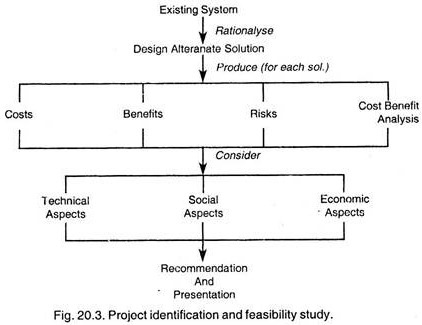Essay on Entrepreneurship
Introduction
Entrepreneurship is a term that is widely applicable in the world of business. There are different definitions of the term entrepreneurship. The first definition identifies entrepreneurship as the process of creating a new business, with a view of making profits while bearing in mind all the risks that are involved. Different scholars have had their opinions about the description of the term entrepreneurship, including Stevenson, a renown expert in the topic. He defined entrepreneurship as the pursuit of opportunity beyond resources controlled. His definition is still widely applied by many in the world of business (Venkataraman, 2019). The second definition is linked to one Frank Knight, who defined it as the bearing of uncertainty and responsibility for risks within the financial market. Joseph Schumpeter also contributed significantly by defining entrepreneurship as the creation of new things in search of profits. Schumpeter also asserts that the role of creating new things is not only left to companies and other businesses but also individuals who make efforts in the area. The researcher introduced the concept of creative destruction to mean creation and invention of a new idea in the market that calls for the demise of the existing competitor. For instance, the emergence of Smartphones killed use traditional means of communication, such as telephone boots and regular use of letters. As such, Joseph Schumpeter contributed significantly as the term creative destruction is universal in the marketing. Marketing is a lucrative field that requires creativity for one to make an impact in the market. Fourth is Israel Kirzner who defined entrepreneurship as the process that led to discovery. It is important to note that most of the definitions by various scholars share a familiar concept, risk-taking and opportunity exploration.
A venture is considered as a small business that is started by one individual or groups with a view of gaining financially. The profits from the investment benefit all the backers of that particular project or business. There are many different ventures that an individual can offer to invest in. An enterprise should aim to make a financial gain to the individual or group that invested. The risk-taking tendency by entrepreneurs and the idea of profit making coincides with the typology of entrepreneurship. Examples of entrepreneurship ventures that many can get into include gazelle, microenterprise, small/lifestyle and medium enterprises.
A gazelle enterprise is a business venture that experiences rapid growth annually for period of over four years. Revenues of such an enterprise increase yearly by over 20% and must have a base capital of at least $100,000. Such companies experience high sales growth rates regardless of their size. However, most of such business ventures operate on the lower end of the scale. Company growth can be measured by the turnover or the number of employees working for the enterprise.
The second entrepreneurial venture is a microenterprise that employs a small number of people, usually less than 10. Microenterprises are started by small amounts of capital and they specialize in providing goods and services within its locality. All microenterprises venture into simple product lines and operate on small scale. Microenterprises contribute largely to the economy as they create employment. Business owners in such ventures enjoy small profits, which they use to improve their standards of living. As such, microenterprises agree to the typology of entrepreneurship by making profits for those who invest.
Small or lifestyle enterprises are business ventures started with aim of sustaining or maintaining a certain level of income. Such enterprises aim at sustaining a certain level of lifestyle for the entrepreneur. They employ a small number of people and maintain certain level of assets for owners. Lifestyle enterprises play a key role in employing people at the same time maintains a particular lifestyle for the owner, thereby, complying with the typology of entrepreneurship.
Medium size enterprises employ between 50 and 500 employees depending on the legislation in that specific nation. Such enterprises have a specified value of assets and in the UK, they have less than 250 employees. In the year 2013, there were over 5.2 million medium sized businesses, which comprised of over 99% of enterprises in the country. The aim of medium business enterprises is to make profit like any other entrepreneurial venture. As such, medium sized business enterprises agree to the typology of entrepreneurship.
According to Wennekers and Thurik (1999), a Schumpeterian entrepreneur is one who aims at capitalizing on the existing entrepreneurial abilities to make profits. In other words, a Schumpeterian entrepreneur will assess the current businesses that are operating and think of better services to people. The Schumpeter concept is Austrian. Existing product and service lines in the market require improvements for better service delivery (Wennekers & Thurik, 1999). A Schumpeter entrepreneur is an individual who capitalizes on such opportunities with a view of providing better services while making profits. An intrepreneur is a person who works for a particular organization and identifies better ways to improve quality and service delivery to customers. Innovative product development and marketing is the role of a manager working for that specific organization. As such, the manager is referred to as an entrepreneur. Managerial business owner is an individual who invests in a venture and entirely owns the business. Administrative business owners are not responsible for innovation and creative destruction in the market as these remains the work of managerial entrepreneurs. The main difference between the three terms described is that an administrative business owner is responsible for financing the venture while the rest work for the owner to ensure innovation and product development. A similarity known among the three types of entrepreneurs is the fact that they all aim to make profits for the owner of the business.
Miles & Snow (2009) classified organizations into four types, including prospector, defender, analytical and follower businesses. A prospector implies an organization that has difficulties in locating and exploiting a new product in the market. Such ventures require constant examination of the continually changing business world to succeed. The element of unpredictability makes a continuous check-up of the market a necessity to establish strategic production. According to the two researchers, prospector organizations have comprehensive product and service lines. Production in such cases prefers to promote creativity to efficiency. Defender organizations are defined as those entities that cannot survive in unstable environments (Miles, Miles, Snow, Blomqvist & Rocha, 2009). Their worry is how to maintain their current market share hence the need for them to operate in a relatively stable business environment. Cost leadership and specialization in a specific product line can well help solve the problem. Analyzer organizations refer to those that have both prospector and defender organization characteristics. They face a challenge of establishing in new markets and at the same have a problem of maintaining their current market share. Follower organizations refer to organizations that do not make long-term plans for business but instead ensure that managers study the dynamic world fast enough to cope with the changes.
Steve Blank in 2010 asserts that there are four types of entrepreneurs, namely small business owners, scalable, large business owners and large entrepreneurs. Small business owners face known risks in the market as they venture into product lines and services that are already known. A scalable business idea digs into the existing opportunity and turns it into a larger business through the expansion of its business activities. The aim of setting up such business entities is to take over the existing market and turn it out to make huge profits. On the other hand, a large business is an entity that has over 5000 employees or has a high financial turnover of over 1.5 billion Euros in a year (Blank, 2010). Any venture that does not feature any of the two characteristics or both of them cannot be termed as a large business. Social entrepreneurship involves start-up companies raising funds to solve cultural, social and environmental problems.
The data presented is indicative of the importance of having small businesses and startups within the economy. The data is extracted from the office of national statistics in the United Kingdom. Moreover, the data presented include information regarding micro-businesses and small businesses contribution to the economy of the region that they operate. For instance, from the year 2010 to 2017, the country has been registering an increasing trend indicating that such businesses play a crucial role. On employment, micro-business ventures employed over 4,618,315 people in 2010, and by 2017 (“Employment – ONS”, 2019), the number of those depending on such businesses rose to 5,491,009. On the other hand, small businesses employed over 3,785, 801 people in the year 2010 to a whopping 4,450, 716 by 2017. As such, micro and small businesses within the economy play a key role in ensuring increased employment opportunities as indicated by statistics from the national office in the UK.
Another vital aspect presented in the data provided is the turnover involved annually in the event of operating such businesses. Like the data on employment, the turnover for both micro and small businesses has been fluctuating from the year 2010. It is also critical to note from the data that in some years, the turnover reduced instead of increasing. For instance, in 2010 the turnover for both micro and small businesses was 589,871,148 and 549,139,326 billions of Euros, respectively. In the following year 2011, the turnover reduced to 552,345,550 and 508,579,840, respectively. However, the figures have increased as of 2017 to 791,771,342 and 616,807,735 respectively. The growth in the turnover of micro and small businesses is a clear indication that they contribute positively to the growth of the economy in the United Kingdom.
In terms of inventory and general count, micro and other small businesses have significantly contributed and have seen an expansion. This is indicated by the data provided as the numbers have changed from 2010 to 2017. In the year 2010, micro-businesses had a count of 1,861,590, which increased to 2,386, 740 by 2017. Additionally, small businesses increased their count from 196, 520 in the year 2010 to a whopping 231, 715 in the year 2017. The graphs provided indicates the trend that has been experienced in the economy in regards to micro and other small businesses. Such ventures are contributing positively to the economy of the United Kingdom.
Small businesses and start-ups play a crucial role in the growth of the social economy. Social economy comprises a diversity of enterprises and organizations sharing common values and features. Such may include cooperatives, mutuals, associations, foundations, paritarian institutions and social enterprises who value social objectives over capital. The first and most important role that the businesses play is the creation of employment (Burns, 2016). For instance, in the United States in the year 2015, small businesses and startups created over 1.9 million jobs. There are over 30.2 million small businesses in the United States who employ approximately 58 million people. As such, small businesses contribute primarily to the growth of the economy by creating jobs.
Second, small scale businesses and start-ups contribute by ensuring that the GDP of the country grows. Social economy contributes to the overall GDP sum and its growth projects more taxes to be paid. A small business thriving locally will have more to give as taxes to the local government and hence a contribution to the GDP. Such money can be used locally to develop infrastructure within the community. As such, small businesses play a vital role in ensuring that the well-being of the community improves in the long run.
Small businesses quickly adjust to changes in the economic environment and act as a cushion to the local economy in cases where large businesses have failed. This is because in cases of unpredictability in the market, small business owners are customer-oriented and can flex quickly to suit the needs of the market. Large businesses have few options in case of a similar predicament and may not help the local economy as anticipated. As such, all small businesses around the world contribute positively to the growth of the social economy as their interest is not capital-driven.
Blank, S. (2010). What’s A Startup? First Principles. Steve Blank .
Burns, P. (2016). Entrepreneurship and small business . Palgrave Macmillan Limited.
Employment – ONS. (2019). Retrieved 23 July 2019, from https://webarchive.nationalarchives.gov.uk/20160105164129/http://www.ons.gov.uk/ons/taxonomy/index.html?nscl=Employment
Miles, R. E., Miles, G., Snow, C. C., Blomqvist, K., & Rocha, H. (2009). The I-form organization. California Management Review , 51 (4), 61-76.
Venkataraman, S. (2019). The distinctive domain of entrepreneurship research. In Seminal Ideas for the Next Twenty-Five Years of Advances (pp. 5-20). Emerald Publishing Limited.
Wennekers, S., & Thurik, R. (1999). Linking entrepreneurship and economic growth. Small business economics , 13 (1), 27-56.

Cite this page
Similar essay samples.
- The Development of Artificial Intelligence for Robot-assisted Surgerie...
- Essay on Should Prostitution Be Legalized?
- Preliminary Care Coordination Plan
- Essay on Managing and Leading People in Organization
- Integrated marketing communications and level of consumer involvement
- Essay on Acceptance of COVID-19 Vaccine in America

Home » Essay » Essay on entrepreneurship (100, 200, 300, & 500 Words)
Essay on entrepreneurship (100, 200, 300, & 500 Words)
Essay on entrepreneurship (100 words), essay on entrepreneurship (200 words), essay on entrepreneurship (300 words), the importance of entrepreneurship.
- Economic Growth : Entrepreneurship plays a crucial role in driving economic growth by creating new businesses, products, and services. It fosters competition and encourages innovation, leading to increased productivity and efficiency in the economy.
- Job Creation : Entrepreneurs are job creators. They not only create jobs for themselves but also generate employment opportunities for others. Startups and small businesses are known to be significant contributors to job creation, especially in developing economies.
- Innovation and Technology : Entrepreneurs are at the forefront of innovation and technological advancements. They constantly challenge the status quo and introduce new ideas, products, and processes, driving progress in various industries.
- Societal Development : Entrepreneurship has a positive impact on society by addressing social problems and meeting unmet needs. Social entrepreneurs focus on creating ventures that tackle issues like poverty, education, healthcare, and environmental sustainability.
Qualities of Successful Entrepreneurs
- Passion and Motivation : Successful entrepreneurs are driven by a strong passion for their ideas, products, or services. They are motivated to overcome challenges and persevere through setbacks, fueling their determination to succeed.
- Creativity and Innovation : Entrepreneurs possess a high degree of creativity and are constantly seeking new and innovative solutions. They think outside the box, challenge conventions, and find unique ways to add value to the market.
- Risk-taking and Resilience : Entrepreneurs are willing to take calculated risks and step out of their comfort zones. They understand that failure is a part of the journey and are resilient enough to bounce back from setbacks and learn from their mistakes.
- Adaptability and Flexibility : The business landscape is ever-evolving, and successful entrepreneurs are adaptable and flexible. They embrace change, pivot when necessary, and stay ahead of market trends and customer demands.
- Leadership and Vision : Entrepreneurs are visionaries who can inspire and lead their teams. They have a clear vision of what they want to achieve and possess the ability to communicate and align their goals with others, turning their vision into reality.
Key Steps in the Entrepreneurial Journey
- Identifying Opportunities : Successful entrepreneurs have a keen eye for identifying market gaps, unsolved problems, and emerging trends. They conduct thorough market research to understand customer needs and assess the viability of their ideas.
- Business Planning : Once an opportunity is identified, entrepreneurs develop a comprehensive business plan. This includes defining their target market, analyzing competitors, outlining their value proposition, and formulating a strategic roadmap.
- Securing Funding : Entrepreneurs often require financial resources to launch and grow their ventures. They explore different funding options such as bootstrapping, seeking loans, attracting investors, or crowdfunding to secure the necessary capital.
- Building a Team : Entrepreneurship is rarely a solo journey. Successful entrepreneurs build a team of skilled individuals who complement their strengths and contribute towards achieving the company’s goals. They understand the importance of delegation and collaboration.
- Execution and Iteration : Entrepreneurs turn their ideas into action by executing their plans and continuously iterating their products or services based on customer feedback. They are agile and adaptable, making changes and improvements as they learn from the market.
- Scaling and Growth : As the venture gains traction, entrepreneurs focus on scaling their operations. They explore opportunities for expansion, enter new markets, and invest in resources to support growth while maintaining a strong customer-centric approach.
Leave a Comment Cancel reply
Save my name, email, and website in this browser for the next time I comment.
- SUGGESTED TOPICS
- The Magazine
- Newsletters
- Managing Yourself
- Managing Teams
- Work-life Balance
- The Big Idea
- Data & Visuals
- Reading Lists
- Case Selections
- HBR Learning
- Topic Feeds
- Account Settings
- Email Preferences
So You Want to Be an Entrepreneur?
- Emily Heyward

One founder’s advice on what you should know before you quit your day job.
Starting a business is not easy, and scaling it is even harder. You may think you’re sitting on a completely original idea, but chances are the same cultural forces that led you to your business plan are also influencing someone else. That doesn’t mean you should give up, or that you should rush to market before you’re ready. It’s not about who’s first, it’s about who does it best, and best these days is the business that delivers the most value to the consumer. Consumers have more power and choice than ever before, and they’re going to choose and stick with the companies who are clearly on their side. How will you make their lives easier, more pleasant, more meaningful? How will you go out of your way for them at every turn? When considering your competitive advantage, start with the needs of the people you’re ultimately there to serve. If you have a genuine connection to your idea, and you’re solving a real problem in a way that adds more value to people’s lives, you’re well on your way.
When I graduated from college in 2001, I didn’t have a single friend whose plan was to start his or her own business. Med school, law school, finance, consulting: these were the coveted jobs, the clear paths laid out before us. I took a job in advertising, which was seen as much more rebellious than the reality. I worked in advertising for a few years, and learned an incredible amount about how brands get built and communicated. But I grew restless and bored, tasked with coming up with new campaigns for old and broken products that lacked relevance, unable to influence the products themselves. During that time, I was lucky to have an amazing boss who explained a simple principle that fundamentally altered my path. What she told me was that stress is not about how much you have on your plate; it’s about how much control you have over the outcomes. Suddenly I realized why every Sunday night I was overcome with a feeling of dread. It wasn’t because I had too much going on at work. It was because I had too little power to effect change.
- EH Emily Heyward is the author of Obsessed: Building a Brand People Love from Day One (Portfolio; June 9, 2020). She is the co-founder and chief brand officer at Red Antler, a full-service brand company based in Brooklyn. Emily was named among the Most Important Entrepreneurs of the Decade by Inc. magazine, and has also been recognized as a Top Female Founder by Inc. and one of Entrepreneur’s Most Powerful Women of 2019.
Partner Center
- Entertainment
- Environment
- Information Science and Technology
- Social Issues
Home Essay Samples Business
Essay Samples on Entrepreneurship
What is entrepreneurship in your own words.
What is entrepreneurship in your own words? To me, entrepreneurship is the art of turning imagination into reality, the courage to chart unexplored territories, and the commitment to leave a lasting mark on the world. It's a journey of boundless creativity, relentless innovation, and unwavering...
- Entrepreneurship
What is Entrepreneurship: Unveiling the Essence
What is entrepreneurship? This seemingly straightforward question encapsulates a world of innovation, risk-taking, and enterprise. Entrepreneurship is not merely a business concept; it's a mindset, a journey, and a force that drives economic growth and societal progress. In this essay, we delve into the multifaceted...
Social Entrepreneurship: Harnessing Innovation
Social entrepreneurship is a transformative approach that merges business principles with social consciousness to address pressing societal challenges. This unique form of entrepreneurship goes beyond profit-seeking and focuses on generating innovative solutions that create positive change in communities. In this essay, we explore the concept...
Evolution of Entrepreneurship: Economic Progress
Evolution of entrepreneurship is a fascinating journey that mirrors the changes in society, economy, and technology throughout history. From humble beginnings as small-scale trade to the modern era of startups, innovation hubs, and global business networks, entrepreneurship has continuously adapted to the dynamic landscape. This...
Importance of Entrepreneurship: Economic Growth and Societal Transformation
Importance of entrepreneurship transcends its role as a mere business activity; it stands as a driving force behind innovation, economic growth, and societal transformation. Entrepreneurship fosters the creation of new products, services, and industries, while also generating employment opportunities and catalyzing economic development. This essay...
- Economic Growth
Stressed out with your paper?
Consider using writing assistance:
- 100% unique papers
- 3 hrs deadline option
Entrepreneurship as a Career: Navigating the Path of Innovation
Entrepreneurship as a career is a compelling journey that offers individuals the opportunity to create their own path, shape their destiny, and contribute to the economy through innovation. While the road to entrepreneurship is laden with challenges and uncertainties, it is also marked by the...
Corporate Entrepreneurship: Fostering Innovation
Corporate entrepreneurship represents a strategic approach that empowers established organizations to embrace innovation, take calculated risks, and explore new opportunities. In an ever-evolving business landscape, the concept of corporate entrepreneurship has gained prominence as companies seek to maintain their competitive edge and adapt to changing...
Challenges Faced by Entrepreneurs: Innovation and Success
Challenges faced by entrepreneurs are a testament to the intricate journey of turning visionary ideas into tangible realities. While entrepreneurship is often associated with innovation and opportunity, it's also characterized by a multitude of hurdles and obstacles that test an entrepreneur's resilience and determination. In...
300 Words About Entrepreneurship: Navigating Innovation and Opportunity
About entrepreneurship is a dynamic journey that involves the pursuit of innovation, creation, and the realization of opportunities. It is the process of identifying gaps in the market, envisioning solutions, and taking calculated risks to bring new products, services, or ventures to life. Entrepreneurs are...
Best topics on Entrepreneurship
1. What is Entrepreneurship in Your Own Words
2. What is Entrepreneurship: Unveiling the Essence
3. Social Entrepreneurship: Harnessing Innovation
4. Evolution of Entrepreneurship: Economic Progress
5. Importance of Entrepreneurship: Economic Growth and Societal Transformation
6. Entrepreneurship as a Career: Navigating the Path of Innovation
7. Corporate Entrepreneurship: Fostering Innovation
8. Challenges Faced by Entrepreneurs: Innovation and Success
9. 300 Words About Entrepreneurship: Navigating Innovation and Opportunity
- Advertising
- Advertising Analysis
- Mystery Shopper
Need writing help?
You can always rely on us no matter what type of paper you need
*No hidden charges
100% Unique Essays
Absolutely Confidential
Money Back Guarantee
By clicking “Send Essay”, you agree to our Terms of service and Privacy statement. We will occasionally send you account related emails
You can also get a UNIQUE essay on this or any other topic
Thank you! We’ll contact you as soon as possible.
179 Entrepreneurship Essay Topics
🏆 best essay topics on entrepreneurship, ✍️ entrepreneurship essay topics for college, 👍 good entrepreneurship research topics & essay examples, 🌶️ hot entrepreneurship ideas to write about, 🎓 most interesting entrepreneurship research titles, ❓ entrepreneurship essay questions.
- Entrepreneurial Ventures and Exploration of Entrepreneurial Mindset
- Education Is Not the Most Important Thing in Business Success
- Becoming an Entrepreneur
- Starting a Small Business
- How to Starting a New Business
- Entrepreneurship. Running a Small Business
- Corporate Entrepreneurship: Theories and Models
- Entrepreneurship: Activities and Typology Entrepreneurship plays an essential role in the growth of the global economy. The government must take measures regarding the promotion of entrepreneurs.
- Relationship Between Entrepreneurship and Innovation Entrepreneurship and innovation are complementary of each other. Having an updated entrepreneurial perspective in business is critical for reaching the aim of innovation.
- Entrepreneurship in the Hotel Industry With proper strategies put in place especially bearing in mind the pace at which the hotel industry is gaining speed, then there definitely is a room for setting up a successful hotel.
- Elon Musk’s Entrepreneurial Performance This report focuses on Elon Musk as an entrepreneur of choice to explore how luck accounts for entrepreneurial performance.
- Amusement Park Concept and Opportunity Analysis The report presents an opportunity analysis for an entrepreneurial concept of an amusement theme park based on the historical, mythical city of Cibola.
- Alan Sugar’s Entrepreneur Characteristics The paper discusses Alan Sugar’s entrepreneurship characteristics: innovation, ability to network, and successes or failures within the lenses of entrepreneurship.
- Entrepreneurship in the Travel and Tourism Industry The entrepreneurship process entails the ideation and implementation of a novel or unique version or way of performing an existing process or system.
- Sole Proprietorship: Benefits of This Business Structure The sole proprietorship is the best business structure for a start. Its advantages are ease of organization and low organizational costs.
- How to Start a Catering Business The catering business is a good way to make money for those who love to cook since catering is not always about making lunch for hundreds of guests.
- Entrepreneurship Skills: Inborn or Gained? Although entrepreneurial skills can be developed through diverse training, education, courses, and seminars, some people are more predisposed to being businessmen.
- Creativity and Innovation Analysis The study explores the innovation as a key driving force of entrepreneurship and the creativity as a key for an individual to innovate.
- Entrepreneurial Mindset and Its Characteristics The key components of the entrepreneurial mindset are often representative of traits and characteristics that are helpful in team building and conflict resolution.
- Personal Success Factors in the Business World The modern business world is characterized by the increased level of rivalry and sophistication of relations between its representatives.
- Social Entrepreneurship Analysis The paper will discuss the area of work of several experts that promote and support social enterprises, their experience in the field, and reflective thoughts on their journey.
- Milton Hershey as the Most Admirable Entrepreneur Although Milton Hershey had a low level of education and skills, he used the failures as a learning experience and as a foundation for the next entrepreneurial venture.
- Financial Projections for Entrepreneurship in Food Industry Running a restaurant, especially in the area known for its high competition rates among the local food production companies, particularly, the fast food industries, is not an easy task.
- Entrepreneurship: Elon Musk as a Role Model The field of entrepreneurship is an individual sphere with unique approaches and a wide range of concepts and practices that define and explain related trends.
- Gender and Entrepreneurship Relations This paper analyzes how different factors affect both men and women in deciding to become entrepreneurs. Marital status is a significant factor for entrepreneurial women.
- Principles of Innovation and Entrepreneurship A business incubator connotes a group that is informally or formally organized to provide entrepreneurial ventures with the resources regarded as critical in their journey.
- Impact of Smartphones on Work-Life Balance The use of smartphones has a negative impact on the work-life balance as employees are forced to respond to messages or calls after the end of the working day.
- Entrepreneurship: Case of Oprah Winfrey In this essay, the concept of entrepreneurship is discussed and the case of Tim Fung is used to use the theoretical terms and understand why he succeeded.
- Moderna Company’s Entrepreneurial Climate Moderna entered the pharmaceutical industry at a competitive and fluctuating time due to socioeconomic factors, evolving industry standards and practices, and policy alterations.
- Fashion Industry Analysis: Interview With J. Jamshed In future Junaid Jamshed plans to expand its business internationally, and opening more opportunities for young entrepreneurs, providing training through workshops.
- Entrepreneurship and New Venture Creation The paper reviews the module on new venture creation. Almost every aspect that is required of an entrepreneur is covered in this module and also mentioned in the paper.
- Social Entrepreneurship Initiatives Change the World From housing access and food inequality to climate change, social entrepreneurship initiatives embark on a journey to facilitate the struggle of the people.
- Heidi Roizen’s Career, Work Principles and Habits Heidi Roizen managed to make use of her experience and networks at each of the following stages of her professional path.
- “Entrepreneur” Magazine: The Latest Issue The main number of topics in the latest issue of “Entrepreneur” touches on the pandemic as one of the determining factors affecting the conventions of business in 2021.
- The Slime Business In this essay, the focus will be on the motivations for setting up the slime business with further discussion of the possible issues arising in a start-up phase.
- China’s International Entrepreneurship & Business China represents a unique country geographically isolated from the rest of the world. Historically, it follows its own economic and political traditions and way of life.
- How to Start a Startup The most important prerequisite that a person seeking success in the business world should gain way before even considering to open his or her own business is the entrepreneurial mindset.
- Entrepreneurship: Business Start-Ups Starting a business is a risk an entrepreneur must be willing to take. The growth of any enterprise often follows a predictable pattern.
- Social Entrepreneurship and Leadership Styles Social entrepreneurship is a unique phenomenon aimed at addressing social issues that influence the lives of individuals.
- Significance of Entrepreneurial Personality There is a large number of personality traits, such as proactivity, emotional resilience, and innovativeness, that could be beneficial for entrepreneurship.
- Entrepreneurship: From Startups to SMEs The success of startups depends on entrepreneurs’ ability to consider all aspects of business performance without ignoring the benefits of corporate social responsibility.
- Internet Selling of Items of Crafts Business Currently, there is an emergence of the concept of entrepreneurship within the business environment. This requires that the potential investors have to scan the environment.
- The Nature and Importance of Entrepreneurs Some of the common denominators on entrepreneurship include the need to achieve, planning, and moderate risk-taking.
- The Process of Becoming an Entrepreneur The entrepreneurship process is when a person identifies an opportunity and develops it to help him generate some profit. It is important to follow four steps in the process.
- Social Enterprises as a New Form of Business The paper analyzes the concept of social enterprises, investigates their novelty, observes their options for making business inclusive, and examines possible drawbacks.
- Business Start-Up Challenges and Niche Marketing Business challenges refer to factors that make it hard for entrepreneurs to launch their new businesses successfully.
- Importance of Intellectual Property for Entrepreneurship Intellectual property is a crucial aspect of the enterprise activity, protecting its processes, ideas, and inventions to maintain competitiveness.
- Entrepreneurship on Mark Zuckerberg’s Example Zuckerberg’s abilities, personality traits, and passions helped him achieve success. Entrepreneurship can be stimulated by family background via supporting an idea.
- Multifunctional Mug for Travelers as an Entrepreneurial Idea This entrepreneurial idea consists in creating a multifunctional mug for travelers that combines the functions of the organizer for cosmetics and the several-layer cup functions.
- A Grocery Delivery Business The main aim of running a business is to make a profit. Proper management of a business is essential in ensuring that a profit is realized in the long run.
- Small and Medium Enterprises in the UK Business Environment The small and medium-sized enterprises in the UK have been of great benefit to the citizens and the country as a whole.
- British Social Enterprises’ Success and Challenges This paper identifies some of the challenges that hinder the success of social enterprises on examples of three UK-based and develops possible solutions to these challenges.
- Entrepreneurship: Innovation, Failure, Culture Entrepreneurial failure refers to the discontinuation or exit from a business which includes a closure for any reason or change in ownership, bankruptcy, and persistent losses.
- Application of Schumpeter’s Innovative Entrepreneurship Theory The aim of the project lies in assessing the application of J. Schumpeter’s innovative entrepreneurship theory in the activities of Ooredoo, the leading telecom company in Qatar.
- Present-Day Entrepreneurs and Their Environment Entrepreneurs drive the economy and foster further technological progress, thus increasing people’s quality of life.
- Five Model of Entrepreneurship: Hurdless and Recommendations The five models of entrepreneurship outline a multidisciplinary explanation of factors that enable the establishment of new ventures.
- Entrepreneurship and Small Business Management Designers are seen as using an iterative process that moves from generating insights about end users, to idea generation and testing, to implementation”.
- Publicly vs. Privately-Owned Enterprises The purpose of this paper is to compare the pros and cons of public and private companies and analyze why certain large organizations chose one form of property over the other.
- Social Entrepreneurship and Democracy The article explores the integral role of social entrepreneurship in democratic societies, particularly in pre-democratic or emerging democracy contexts.
- The Rejection of the Personality Approach to Entrepreneurship This essay will examine the three reasons for the rejection of the personality approach to entrepreneurship, supporting the analysis with the trait theory of entrepreneurship.
- Entrepreneurship: Relationship Marketing One of the most difficult and expensive tasks that any business owner faces is finding new customers or retaining old ones.
- Entrepreneurship and Innovation: Entrepreneurial Opportunities for Graduates The classic expression of entrepreneurship is the raw start-up company, an innovative idea that develops into a high-growth company.
- Mayo Clinic: Entrepreneurship Reflection Patient experiences within this organization are quite memorable. Upon entering Mayo Clinic, one receives a warm welcome and directions on how best to utilize their services.
- Entrepreneurship Culture and Entrepreneurship Climate Analysis Entrepreneurship climate largely determines how an organization is revitalized from time to time. New ideas need to be incorporated into the management of organizations.
- Entrepreneur’s Harvest Goals and Their Achievement This paper discusses the concept or option of harvest goals, their benefits and the options available in pursuing the goal.
- St. George Bank: Human Resources and Entrepreneurship St. George Bank should also come up with new methods to access their customers and also new channels on which the customers can get their services.
- Business Idea vs. Opportunity Comparison An opportunity is differentiated from an idea in terms of its marketing possibilities. All opportunities are exploitable for business growth.
- Business Planning Process for Entrepreneurs A business plan is a written description of the future of a business. It is a tool for entrepreneurs to implement their business goals.
- ‘Ziegfeld: The Man Who Invented Show Business’ by Mordden The book ‘Ziegfeld: The Man Who Invented Show Business’ is written by Ethan Mordden and is entirely about the inventor of the show business Mr. Florenz Ziegfeld.
- Family Business: Entrepreneurial Challenges and Financing This paper gives a detailed discussion of the entrepreneurial challenges that emerging or new family businesses face. It also identifies the major sources of funds for such ventures.
- Entrepreneurship and Human Capital Management This paper debates on the relevance of the definition of entrepreneurship by looking at the characteristics and qualities an individual needs to become a successful entrepreneur.
- Human Capital Management in Entrepreneurship This report provides an overview of the management of human capital and entrepreneurship in contemporary business institutions.
- Wu Yajun’s and Steve Jobs’s Entrepreneurial Acumen Entrepreneurship is the process of establishing a business for effective service delivery and for profit making.
- Encouraging Entrepreneurship in Corporate Settings The key strategies to encourage entrepreneurship in corporate settings are commercial factors. Such factors are economic aspects associated with the desire to increase incomes.
- Entrepreneurship Abilities and Predisposition The paper proves that entrepreneurship skills can be fostered in virtually anyone, which means that anyone can be an entrepreneur.
- Aspects of Non-Traditional Entrepreneurship The paper reveals the conceptual material concerning non-traditional entrepreneurship. It incorporates non-traditional forms into the standard theoretical framework.
- Eco-Entrepreneurship and Theoretical Framework Successful eco-entrepreneurship is characterized by the ability to address the conditions of the Volatility, Uncertainty, Complexity, and Ambiguity framework.
- Social Entrepreneurship: Key Aspects Social entrepreneurship has as its goal the development of organizations for the achievement of social good and not for personal gain.
- Eco-Entrepreneurship Characteristics and Psychology The paper states that considering eco-entrepreneurship in the solar industry, it is necessary to understand the current global situation.
- Immigration Entrepreneurship and Economic Development Despite strong opposition from various nations, research indicates that immigration regulations should be less enforced due to the overall positive effect on the economy.
- A Path to Creating Steve Jobs Business Steve Jobs has become a symbol of everything advanced in the field of IT and an example of a person who built a sizeable profitable business from scratch.
- Decision-Making and Performance in Business Decision-making goes hand in hand with performance in the business, as the performance of the business is determined by the decision-making of the entrepreneur.
- Aligning Entrepreneurial Orientation and Behavior The dimensions of entrepreneurial orientation align with the nature of the industry since there is a relationship between the decision-making styles and the behavior of managers.
- Brazilian Business From Personal Experience In this paper, the author recognizes and analyzes one of the most important problems of doing business in Brazil, which is the lack of success stories.
- Corporate Entrepreneurship and Small Business Corporate entrepreneurship refers to the adoption of a strategy that encourages employees to be innovative by proposing and introducing new methods of operations.
- Sole Proprietorship in the United States Since a sole proprietor in the United States is not legally considered a legal entity, the tax liability is limited only to a standard personal declaration.
- Experiential Learning of Entrepreneurship and Innovation Studying entrepreneurship in higher education shows that one must employ experiential knowledge and go through the process called “learning by doing”.
- Entrepreneurial Networking and Relationship Capital In modern business, entrepreneurial networking and relationship capital have already attracted particular attention. This work aims to examine the importance of these concepts.
- Entrepreneurship in Third-World Countries Countries with low incomes, such as those that belong to the third world, do not benefit from globalization. This negatively influences the country’s potential for innovation.
- Researching of Strategic Innovation It is possible to advise technical process automation in a circumstance where incremental innovation or change is a preferable approach.
- Incubating Technology-Based Firms: Innovation Ambidexterity The formation of innovation policy is the most important condition for developing the foundations of sustainable development of incubating technology-based firms.
- Entrepreneurship: A Fixed State of Existence or a Role Concerning entrepreneurship as a role, one may remember how Mark Zuckerberg has turned from a former student to a person of the year, a successful Internet entrepreneur.
- An Innovative Entity’s Key Components J. Tidd & J. R. Bessant suggested seven key components of an innovative entity, three of which are addressed in this essay.
- An Entrepreneur’s Leadership Role Management style is a unique way through which organization leaders go about accomplishing the set objectives of the business firm.
- How Identity Can Influence One’s Business Performance Personal identity can be a defining factor for business goals and objectives and tie it back to a broader society.
- Entrepreneurship and Sustainability: Building Innovation in construction is an important aspect that helps not only optimize individual approaches to planning but also carry out bold and creative projects.
- Regulations of Small and Medium Enterprises SMEs have a strong need for formal regulation, but a healthy balance must be maintained in order for the regulative process not to interfere with the SMEs’ working processes.
- Learning Entrepreneurship in Examples There are numerous examples of successful people who learned entrepreneurship and significantly benefited from it.
- The Possibility of Bankruptcy in Entrepreneurship The possibility of bankruptcy evokes significant concerns in entrepreneurs regardless of their experience in the field and position in the market.
- Financial Literacy and Self-Awareness in Entrepreneurship The paper states that financial literacy and self-awareness should become an integral component of a person’s skill set in business.
- Samantha Gerson: CEO of UnBroken Samantha Gerson is CEO of UnBroken, a non-profit organization offering legal and therapeutic services to individuals who survived institutional abuse and conversion therapy.
- Entrepreneurship and Macroeconomics To explore the topic of increased entrepreneurship as a result of the pandemic, the article by Berkan Altun will be analyzed and embedded into the context of macroeconomics study.
- The Vacant Municipal Lands and Properties: Entrepreneurial Activities This paper focuses on the types of entrepreneurial initiatives available to small towns as they seek to fill empty commercial spaces and sell or develop vacant municipal lands.
- The Best Growth Strategy for an Entrepreneurial Venture or a Small Business Opening a business and starting the work is not easy, but it is even more difficult to stay competitive in the marketplace and not become cash negative.
- An Analysis of the Company Entrepreneurs Alliance This report shall serve as an evaluation of the company Entrepreneurs Alliance (EA), which is a consortium where different types of entrepreneurial organizations come together.
- Transition from Military Service to Entrepreneurship Identifying the positive and negative traits acquired during military service is an essential aspect of studying the success of veterans in entrepreneurship.
- Intrapreneurship: Control on the Company’s Goals Intrapreneurs are self-motivated with an entrepreneurship mentality, although they are not directly affected by their losses and profits.
- Successful Entrepreneurship: Main Components In order to create a successful enterprise, it is imperative to develop the skills of strategic thinking, organizational skills and creativity.
- Innovation in International Business International business is the highest form of entrepreneurial activity, and innovation plays a vital role in the conceptual idea of gaining a competitive advantage.
- Market Designs and Entrepreneurship Innovations This essay discusses the comparison between companies that upheld the triadic approach to entrepreneurship and companies that did not use the method.
- Potential Entrepreneurial Business Venture Starting a retail and distribution consultancy business venture in the future is one of the most lucrative business ideas.
- Innovativeness Catalysts of Indian Firms First of all, innovations are promoted by knowledge and information, which have become a resource of vital importance.
- Elon Musk: Factors Impacting Successful Entrepreneurship The paper argues that vertical integration, building and exploiting innovation capital, and hiring top talent contribute to Musk’s successful entrepreneurship.
- Restaurant Business Environment and Management The document highlights the business environment with an indication of the challenges faced by the restaurant owner throughout the operation.
- Market Expansion Investigation The choice of Poland for the launching the product of Company, dog food, is reasonable, as the food industry is one of the country’s leading sectors.
- The Importance of Vision and Failures for an Entrepreneur This paper aims at discussing the importance of vision and failures for an entrepreneur and describing Elon Musk’s entrepreneurial characteristics.
- “Lifesizing Entrepreneurship“ by Robert A. Miller The article aimed to show why lifesizing in business is essential and how it can be used to counteract the decline in ethics and lead to more people benefiting from the industry.
- Power Your Business Into 2011: Paddy Power The main keynote of a seminar titled “Power your Business into 2011” was Paddy Power, the communication director of Paddy Power Bookmaker organisation.
- HE Sara Al Madani: One of the Brightest Examples of Women’s Success The current paper provides an overview of HE Sara Al Madani’s current activities and offers an in-depth insight into her views on the business domain.
- Entrepreneurship. The Fish Lady Company in Soquel The owners of The Fish Lady operate a vibrant food market in Soquel. They sell a variety of foodstuffs which include; fish, meat, poultry, cheese, and wine.
- Business Plan and All Aspects That Includes Successful Fashion Industry According to recorded research, the fashion industry keeps on evolving every decade, and it is unlikely that a particular trend will spread past one decade.
- Perpectives of the Catering Business in Bulgaria Bulgaria presents a good opportunity to operate a catering business that will provide custom-made services for them in their kitchens
- Recycling of Materials: Entrepreneurship Assignment Recycling of materials has been a very crucial part of our economic activities. It forms a part of the national income and also secures jobs for some individuals within the economy.
- Entrepreneurship: The Dale Gray Story The story of Communication Services Inc. as told by the CEO, Dale Gray, is one such of starting a successful business.
- Toward a Theory of International New Ventures The article by Zahra (2005) examines the work by Oviatt and McDougall (1994) as a milestone work in the history of international entrepreneurship theories’ development.
- What Are the Qualities That Help an Entrepreneur in Being Successful? The paper deals with qualities of an entrepreneur that are useful and make him/her successful in their endeavours and business ventures.
- Entrepreneurship and the Role of Innovation Entrepreneurship is the art of pulling together resources and business acumen as a way of transforming innovations into economically viable goods
- Family-Operated Business in Hong Kong This paper is an attempt to understand a typical family-run unit and the circumstances by which they remain as such.
- Entrepreneurship. Money in the Resource Equation Money is the least important part of the resource equation because starting a new business requires an entrepreneur’s ability to take risks.
- Venture Founders Prepare for the Due Diligence and Evaluation This paper is a review of due diligence that should be practiced in the creation of a new venture. It will also look at how investors evaluate a start-up venture.
- Small Business Administration Loan Guarantee The Small Business Administration (SBA) is a principal federal agency involved in import and export promotion.
- Limited Liability Company and Other Ownership Forms This paper discusses the main peculiarities of different business entities. Much attention will also be paid to the positive aspects of a limited liability company.
- The Next Big Thing Simulation for Entrepreneurs The Next Big Thing might seem a simple fun game, yet it also sheds light on some of the most challenging business tasks, which is a choice of a possible investment.
- Legal Frameworks for Starting Own Business Given the scale of the business and the limited previous experience of the partners, the most suitable legal framework for a shop is a private limited company.
- Entrepreneurial Capability of Students and Business Development Student has shown his entrepreneurial capability at the rising stage of his career through an initiative of starting a part-time home forwarding job.
- Entrepreneur Notebook: The Entrepreneurial Process, Strategy, and Problem Solving Discovering your creative problem solving is one of the most essential skills that an entrepreneur should possess.
- Women Entrepreneurs in Saudi Arabia In Saudi Arabia, the number of business women is approximated at around 23,000 women. This is a small figure compared with the number of men who operate businesses in this country.
- Small Business Administration and Management A small business is any business that has less than 500 employees. Also, it is not a dominant player in that specific industry on a national basis.
- Managing Human Capital and Entrepreneurship This paper is a critical analysis of the characteristics and qualities that individuals require in order to become successful entrepreneurs.
- Social Entrepreneurship and Future Ventures: ENVIE v. ACTIF Social capital is critical in the creation of skills and future careers. In every society, there are gaps that result from the development of different community structures.
- Business Models, Lean Startup and Entrepreneurship The role of business models in lean startups is not as crucial as in traditional ones. Lean startups focus on finding the right business model by testing the existing hypotheses.
- Entrepreneurship and Innovation Management Concepts Nowadays, it remains evident that the business world tends to evolve, and its growth is accompanied by an extended variety of concepts and their development.
- Building an Innovation Ecosystem Most of the new entrepreneurs overlook the importance of culture of innovation and entrepreneurial spirit. The surrounding environment should have enough self-confidence.
- Entrepreneurs: Business Life and Success in Entrepreneurship Entrepreneurs create businesses that offer products, processes, and services for hire and/or sale in a free market.
- Six Sigma for the Quality Program Improvement Being an addition to the structure of the quality management process, the philosophy of Six Sigma has established itself rather successfully in the specified environment.
- Enterprise Resource Planning System Integration Enterprise Resource Planning or ERP is a generic term, a byproduct of an industry that gave rise to integrated and multi-modules application software packages.
- Exploration of Leadership and Entrepreneurship Fields Whereas the fields of leadership and entrepreneurship have their differences, there is much they have in common, and they depend on each other based on the experiences they share.
- Bankruptcy Law and Entrepreneurship The aim of this paper is to investigate how areas of bankruptcy law influence business decisions, determine the most impactful principles of the law, and explore the common fears related to the law.
- Buffalo Re Use as a Social Entrepreneurship Endeavour Social entrepreneurship is an innovative process that responds to market failures by use of transformations so as to provide solutions to social problems.
- What Are the Features of Entrepreneurial Ventures?
- Is Network Marketing Entrepreneurship?
- Can Lack of Experience Cause Entrepreneurship Failure?
- What Are the Challenges of Entrepreneurship?
- What Ethical Issues Do Entrepreneurs Face?
- Why Does Entrepreneurship Fail to Solve Poverty in Developing Countries?
- What Makes an Entrepreneur Successful?
- What Are the Driving Forces Influencing the Entrepreneurial Trend in the Economy?
- What Elements Does the Entrepreneurial Process Include?
- What Are Risks of Entrepreneurship?
- How Does the Firm Create a Supportive Climate for Entrepreneurship?
- How Does Entrepreneurship Support Cultural Diversity?
- What Are the Myths of Entrepreneurship?
- How Can You Maximize Profits in Entrepreneurship?
- Can Entrepreneurs Without Prepared Business Plans Get a Loan?
- What Are the Incentives for Entrepreneurship?
- Can a Thorough Business Plan Guarantee Entrepreneurial Success?
- How Does Entrepreneurship Differ From Business?
- What Is the Importance of Creativity in Entrepreneurship?
- How to Avoid Mistakes in Entrepreneurship?
- Can Entrepreneurship Provide an Alternative Career Path for Minorities in the United States?
- What Is Social Entrepreneurship?
- What Are the Types of Entrepreneurship?
- What Is the Relationship Between Entrepreneurship and Supply and Demand?
- What Is the Effect of Monetary Policy on Entrepreneurship?
- Can a Businessman Be an Entrepreneur?
- Is Entrepreneurship Essential for Economic Growth?
- What Are Benefits of Entrepreneurship?
- Why Large Established Companies Support Entrepreneurship?
- What Are Psychological Factors That Influence Entrepreneurship Development?
Cite this post
- Chicago (N-B)
- Chicago (A-D)
StudyCorgi. (2023, May 18). 179 Entrepreneurship Essay Topics. https://studycorgi.com/ideas/entrepreneurship-essay-topics/
"179 Entrepreneurship Essay Topics." StudyCorgi , 18 May 2023, studycorgi.com/ideas/entrepreneurship-essay-topics/.
StudyCorgi . (2023) '179 Entrepreneurship Essay Topics'. 18 May.
1. StudyCorgi . "179 Entrepreneurship Essay Topics." May 18, 2023. https://studycorgi.com/ideas/entrepreneurship-essay-topics/.
Bibliography
StudyCorgi . "179 Entrepreneurship Essay Topics." May 18, 2023. https://studycorgi.com/ideas/entrepreneurship-essay-topics/.
StudyCorgi . 2023. "179 Entrepreneurship Essay Topics." May 18, 2023. https://studycorgi.com/ideas/entrepreneurship-essay-topics/.
These essay examples and topics on Entrepreneurship were carefully selected by the StudyCorgi editorial team. They meet our highest standards in terms of grammar, punctuation, style, and fact accuracy. Please ensure you properly reference the materials if you’re using them to write your assignment.
This essay topic collection was updated on January 8, 2024 .
- Business Essentials
- Leadership & Management
- Credential of Leadership, Impact, and Management in Business (CLIMB)
- Entrepreneurship & Innovation
- *New* Digital Transformation
- Finance & Accounting
- Business in Society
- For Organizations
- Support Portal
- Media Coverage
- Founding Donors
- Leadership Team

- Harvard Business School →
- HBS Online →
- Business Insights →
Business Insights
Harvard Business School Online's Business Insights Blog provides the career insights you need to achieve your goals and gain confidence in your business skills.
- Career Development
- Communication
- Decision-Making
- Earning Your MBA
- Negotiation
- News & Events
- Productivity
- Staff Spotlight
- Student Profiles
- Work-Life Balance
- Alternative Investments
- Business Analytics
- Business Strategy
- Business and Climate Change
- Design Thinking and Innovation
- Digital Marketing Strategy
- Disruptive Strategy
- Economics for Managers
- Entrepreneurship Essentials
- Financial Accounting
- Global Business
- Launching Tech Ventures
- Leadership Principles
- Leadership, Ethics, and Corporate Accountability
- Leading with Finance
- Management Essentials
- Negotiation Mastery
- Organizational Leadership
- Power and Influence for Positive Impact
- Strategy Execution
- Sustainable Business Strategy
- Sustainable Investing
- Winning with Digital Platforms
What Does It Take to Be a Successful Entrepreneur?

- 09 Jul 2020
The world is filled with aspiring entrepreneurs—people who believe they have what it takes to launch a company and build it into a profitable business. While anyone can start a business, not everyone will succeed.
Research by Harvard Business School Professor Shikhar Ghosh shows that up to 75 percent of startups fail. According to Zippia , 22 percent of small businesses fail within one year of being launched, half fail within five years, and approximately two-thirds fail within 10 years.
In light of these statistics, the question becomes: What does it take to be a successful entrepreneur? What steps can aspiring entrepreneurs take to lay the groundwork for success?
Access your free e-book today.
What Is an Entrepreneur?
An entrepreneur is someone who launches a business venture, typically in the form of a company that manufactures and sells a product or provides a service. Entrepreneurs are often viewed as innovators who identify a problem or opportunity, then develop a solution no one else has recognized.
In the online course Entrepreneurship Essentials , it’s noted that “entrepreneurs—either individuals or teams—actively scan the environment for opportunities, or discover them as they live and work. They form hypotheses about what customers want or need and how they can deliver value to the customer.”
Successful entrepreneurs don’t just charge ahead with their ideas. First, they seek to validate there’s demand.
One way they do so is through testing. According to Entrepreneurship Essentials , entrepreneurs “recruit people and invest money to determine if customers will indeed value the product and they can produce and deliver it at an acceptable cost. They often find different, even better ideas once in the marketplace.”
Check out the video below to learn more about what it takes to succeed as an entrepreneur, and subscribe to our YouTube channel for more explainer content!
Entrepreneurship Requirements
Do you have dreams of one day becoming an entrepreneur and launching your own company? In addition to a business idea, doing so will require you to possess certain skills and characteristics .
1. Key Entrepreneurship Qualities and Behaviors
Several researchers have tried to pinpoint a specific entrepreneurial personality or profile in an attempt to quantify what makes some more successful than others.
In Entrepreneurship Essentials , it’s explained that there’s no single personality profile that leads someone to success as an entrepreneur. However, there are a number of characteristics shared by some of the world’s most successful entrepreneurs.
Some behaviors that are distinct from personality traits and associated with entrepreneurship include curiosity, pattern recognition, team building, structured experimentation, adaptation, decisiveness, and persistence.
While it can be argued that some people are more inclined to exhibit these behaviors than others, each of these qualities can be acquired through proper training and development .
2. Essential Entrepreneurial Skills
Especially in the earliest stages of launching a business, entrepreneurs are responsible for performing a variety of duties—it comes with the territory. Before you have an accounting department, marketing staff, and product development team, you'll likely need to perform some of these critical responsibilities.
Taking the time to develop certain skills before launching your business can drastically improve your chances of success. Here’s a list of some of the most critical skills all entrepreneurs should have:
- Communication skills , which you’ll leverage daily as you work with vendors, investors, customers, and various members of your growing team
- Organizational skills , which will empower you to work toward your goals efficiently
- Time management skills , which will be essential throughout your career, but especially early on, when you have multiple responsibilities
- Data-driven decision-making , which will enable you to make objective, measurable decisions about your products, services, business, and customers
- Strategic thinking , which will allow you to discover opportunities and threats that guide business decisions more easily
- Accounting basics , which will be especially important before you have a person or team dedicated to managing your business’s finances
- Resilience , because every entrepreneur faces challenges and struggles, and it takes resilience to bounce back

3. An Opportunity or Business Idea
For a new venture to succeed, the business plan must be centered around a solid opportunity. In Entrepreneurship Essentials , an opportunity is defined as a proposed venture to sell a product or service for which customers are willing to pay more than the required investments and operating costs.
An opportunity is more than a product idea, and it extends well beyond the initial act of getting into business. According to Entrepreneurship Essentials, “it’s a plan that shows how a venture will attract, retain, and reward all stakeholders, including customers, founders, employees, investors, distributors, and suppliers.”
That plan doesn’t end once you’ve identified an innovative business idea . Ideally, your concept should be validated before you commit resources, time, and effort to bring it to life. Once validated and pursued, you must constantly reevaluate your business to determine whether you need to adapt to new opportunities or threats.
4. Resources and Funding
Finally, to launch your business, you’ll need a source of funding to purchase equipment and materials, develop your product or service, iterate upon your offerings, and refine your processes. Exactly what funding looks like will vary depending on the type of business you’re launching and your industry.
For some entrepreneurs, self-funding is possible. In such cases, an entrepreneur might set aside enough money to pay for their living expenses while they get their business off the ground, in addition to the costs associated with the launch.
Self-funding isn’t the only option available. There are many other paths you might take, such as:
- Securing an SBA loan from the Small Business Administration
- Raising capital from investors
- Applying for grants (this may be especially suitable for nonprofit organizations)
- Crowdfunding from the public
- Relying on a line of credit
Every form of funding comes with benefits and risks. Self-funding, for example, allows you to retain complete control over your business and potential profits, but also requires you to carry the risk of failure. Raising capital from investors, on the other hand, allows you to spread your risk and, potentially, launch your business quicker—but it forces you to give up a portion of your control. Ultimately, you must decide what makes the most sense for your business.

Your Path to Becoming an Entrepreneur
Countless aspiring entrepreneurs have an interesting, innovative, and compelling business idea, but don’t have the skills or qualities to carry it through to fruition. Similarly, many others have the skills and qualities, but lack an idea to pursue. Even those with a brilliant idea and the necessary skills can fail to get their project off the ground if they don’t have access to funding. Successful entrepreneurship requires a blend of all these components.
The good news is: Successful entrepreneurs aren’t born—they’re made. With the right training , instruction, and development, everyone has the potential to become an entrepreneur.
Are you interested in learning the ins and outs of entrepreneurship? Explore our four-week online course Entrepreneurship Essentials and our other entrepreneurship and innovation courses to learn to speak the language of the startup world. If you aren't sure which course is the right fit, download our free course flowchart to determine which best aligns with your goals.

About the Author
- Browse All Articles
- Newsletter Sign-Up
Entrepreneurship →

- 22 Mar 2024
- Research & Ideas
Open Source Software: The $9 Trillion Resource Companies Take for Granted
Many companies build their businesses on open source software, code that would cost firms $8.8 trillion to create from scratch if it weren't freely available. Research by Frank Nagle and colleagues puts a value on an economic necessity that will require investment to meet demand.

- 12 Mar 2024
- Cold Call Podcast
How to Bring Good Ideas to Life: The Paul English Story
Paul English is one of the most imaginative and successful innovators of his generation. He cofounded several companies, including Kayak, before starting Boston Venture Studio, where he is currently a partner. This multimedia case, “Bringing Ideas to Life: The Story of Paul English,” explores his process of creative idea generation, examining how he was able to bring so many ideas to market. In this episode, Harvard Business School professor Frances Frei and English discuss how to tell the difference between a good idea and a bad one, the importance of iteration, and taking a systematic (but fast) approach to developing new ideas. They also explore how his process dovetails with Frei’s “move fast and fix things,” strategy from her recent book.

- 05 Dec 2023
What Founders Get Wrong about Sales and Marketing
Which sales candidate is a startup’s ideal first hire? What marketing channels are best to invest in? How aggressively should an executive team align sales with customer success? Senior Lecturer Mark Roberge discusses how early-stage founders, sales leaders, and marketing executives can address these challenges as they grow their ventures in the case, “Entrepreneurial Sales and Marketing Vignettes.”

- 10 Oct 2023
Scaling Two Businesses Against the Odds: Wendy Estrella’s Founder’s Journey
Entrepreneur Wendy Estrella is attempting to simultaneously scale her law practice, as well as her property management and development company. What strategy will benefit both businesses, and is there a downside to scaling them together, rather than focusing on each one separately? Harvard Business School senior lecturer Jeffrey Bussgang and Estrella discuss her unique founder’s journey – from immigrating to the U.S. to building both of her businesses in Lawrence, Massachusetts despite the specific challenges she faced as a minority entrepreneur. The related case is “Wendy Estrella: Scaling Multiple Businesses.”

- 01 Aug 2023
Can Business Transform Primary Health Care Across Africa?
mPharma, headquartered in Ghana, is trying to create the largest pan-African health care company. Their mission is to provide primary care and a reliable and fairly priced supply of drugs in the nine African countries where they operate. Co-founder and CEO Gregory Rockson needs to decide which component of strategy to prioritize in the next three years. His options include launching a telemedicine program, expanding his pharmacies across the continent, and creating a new payment program to cover the cost of common medications. Rockson cares deeply about health equity, but his venture capital-financed company also must be profitable. Which option should he focus on expanding? Harvard Business School Professor Regina Herzlinger and case protagonist Gregory Rockson discuss the important role business plays in improving health care in the case, “mPharma: Scaling Access to Affordable Primary Care in Africa.”

- 05 Jul 2023
How Unilever Is Preparing for the Future of Work
Launched in 2016, Unilever’s Future of Work initiative aimed to accelerate the speed of change throughout the organization and prepare its workforce for a digitalized and highly automated era. But despite its success over the last three years, the program still faces significant challenges in its implementation. How should Unilever, one of the world's largest consumer goods companies, best prepare and upscale its workforce for the future? How should Unilever adapt and accelerate the speed of change throughout the organization? Is it even possible to lead a systematic, agile workforce transformation across several geographies while accounting for local context? Harvard Business School professor and faculty co-chair of the Managing the Future of Work Project William Kerr and Patrick Hull, Unilever’s vice president of global learning and future of work, discuss how rapid advances in artificial intelligence, machine learning, and automation are changing the nature of work in the case, “Unilever's Response to the Future of Work.”

- 16 May 2023
- In Practice
After Silicon Valley Bank's Flameout, What's Next for Entrepreneurs?
Silicon Valley Bank's failure in the face of rising interest rates shook founders and funders across the country. Julia Austin, Jeffrey Bussgang, and Rembrand Koning share key insights for rattled entrepreneurs trying to make sense of the financing landscape.

- 14 Mar 2023
Can AI and Machine Learning Help Park Rangers Prevent Poaching?
Globally there are too few park rangers to prevent the illegal trade of wildlife across borders, or poaching. In response, Spatial Monitoring and Reporting Tool (SMART) was created by a coalition of conservation organizations to take historical data and create geospatial mapping tools that enable more efficient deployment of rangers. SMART had demonstrated significant improvements in patrol coverage, with some observed reductions in poaching. Then a new predictive analytic tool, the Protection Assistant for Wildlife Security (PAWS), was created to use artificial intelligence (AI) and machine learning (ML) to try to predict where poachers would be likely to strike. Jonathan Palmer, Executive Director of Conservation Technology for the Wildlife Conservation Society, already had a good data analytics tool to help park rangers manage their patrols. Would adding an AI- and ML-based tool improve outcomes or introduce new problems? Harvard Business School senior lecturer Brian Trelstad discusses the importance of focusing on the use case when determining the value of adding a complex technology solution in his case, “SMART: AI and Machine Learning for Wildlife Conservation.”

- 17 Jan 2023
8 Trends to Watch in 2023
Quiet quitting. Inflation. The economy. This year could bring challenges for executives and entrepreneurs, but there might also be opportunities for focused leaders to gain advantage, say Harvard Business School faculty members.

- 10 Jan 2023
Time to Move On? Career Advice for Entrepreneurs Preparing for the Next Stage
So many people shift from one job to the next, with little time to consider how the experience changed them and what they want out of future ventures. Julia Austin recommends that entrepreneurs look within and reflect on these questions before they jump into a new opportunity.

- 03 Jan 2023
Wordle: Can a Pandemic Phenomenon Sustain in the Long Term?
Wordle went from a personal game, created by a developer for his girlfriend, to a global phenomenon with two million users in just a few months. Then The New York Times made an unexpected bid to acquire it. But will Wordle outlast other pandemic pastimes? Harvard Business School senior lecturer Christina Wallace discusses the journey of software engineer and accidental entrepreneur Josh Wardle in the case, “Wordle.”

- 26 Oct 2022
How Paid Promos Take the Shine Off YouTube Stars (and Tips for Better Influencer Marketing)
Influencers aspire to turn "likes" into dollars through brand sponsorships, but these deals can erode their reputations, says research by Shunyuan Zhang. Marketers should seek out authentic voices on YouTube, not necessarily those with the most followers.

- 19 Oct 2022
Cofounder Courtship: How to Find the Right Mate—for Your Startup
Like any other long-term partnership, choosing the right cofounder is a complicated decision with big implications for a venture. Julia Austin offers practical advice for entrepreneurs who are searching for "the one."

- 06 Sep 2022
Reinventing an Iconic Independent Bookstore
In 2020, Kwame Spearman (MBA 2011) made the career-shifting decision to leave a New York City-based consulting job to return to his hometown of Denver, Colorado, and take over an iconic independent bookstore, The Tattered Cover. Spearman saw an opportunity to reinvent the local business to build a sense of community after the pandemic. But he also had to find a way to meet the big challenges facing independent booksellers amid technological change and shifting business models. Professor Ryan Raffaelli and Spearman discuss Spearman’s vision for reinventing The Tattered Cover, as well as larger insights around how local businesses can successfully compete with online and big box retailers in the case, “Kwame Spearman at Tattered Cover: Reinventing Brick-and-Mortar Retail.”

- 16 Aug 2022
Now Is the Time for Entrepreneurs to Play Offense
With the specter of recession looming, many worried founders and executives are aggressively shoring up cash. But shrewd entrepreneurs are using these six tactics instead to gain advantage, says Jeffrey Bussgang.

- 26 Jul 2022
Can Bombas Reach New Customers while Maintaining Its Social Mission?
Bombas was started in 2013 with a dual mission: to deliver quality socks and donate much-needed footwear to people living in shelters. By 2021, it had become one of America’s most visible buy-one-give-one companies, with over $250 million in annual revenue and 50 million pairs of socks donated. Later, as Bombas expanded into underwear, t-shirts, and slippers, the company struggled to determine what pace of growth would best allow it to reach new customers while maintaining its social mission. Harvard Business School assistant professor Elizabeth Keenan discusses the case, "Bee-ing Better at Bombas."

- 07 Jul 2022

How a Multimillion-Dollar Ice Cream Startup Melted Down (and Bounced Back)
A Brooklyn-based ice cream shop was getting buzz, and Disney was pitching a brand partnership. So how did the business wind up filing for bankruptcy? A case study by Thomas Eisenmann and Lindsay N. Hyde examines the rise and fall—and recent rebound—of Ample Hills Creamery.

- 10 May 2022
Being Your Own Boss Can Pay Off, but Not Always with Big Pay
Working for yourself might bring freedom and autonomy, but it increasingly comes with a major risk: low pay. Research by William Kerr explores the shifting sands of self-employment.

- 03 May 2022
Can a Social Entrepreneur End Homelessness in the US?
Community Solutions is a nonprofit founded in 2011 by Rosanne Haggerty, with the ambitious goal of ending chronic homelessness in America. Its “Built for Zero” methodology takes a public health approach, helping communities across the US use better data collection and outreach to improve government processes and piecemeal solutions. In 2021, Community Solutions was awarded a $100 million grant from the MacArthur Foundation, and Haggerty and her team had to decide how to prioritize projects and spending to maximize the grant’s impact. Should they continue to focus on unhoused veterans or expand their work to include families and youth in need of housing? Senior Lecturer Brian Trelstad discusses Haggerty’s approach in his case, "Community Solutions."

- 22 Feb 2022
How to Scale a Startup Marketplace for Used Furniture
AptDeco, a peer-to-peer marketplace for used furniture in the New York City area, was growing rapidly in the massive $120 billion furniture market, despite its complexity and high costs. Co-founders Reham Fagiri and Kalam Dennis were considering different options to scale the business, including converting sellers into buyers and vice versa, finding superusers to fuel the supply for their platform, expanding to new markets, and rebranding with a sustainability focus. Professor Ayelet Israeli and AptDeco co-founder Kalam Dennis discuss the best way to scale the business in the case, “AptDeco: Circular Economy Furniture Marketplace.” Open for comment; 0 Comments.
Essay on Entrepreneurship: Top 9 Essays | Business Management
Here is a compilation of essays on ‘Entrepreneurship’ for class 11 and 12. Find paragraphs, long and short essays on ‘Entrepreneurship’ especially written for school and college students.
Essay on Entrepreneurship
Essay Contents:
- Essay on the Benefits of Entrepreneurship
Essay # 1. Introduction to Entrepreneurship:
Entrepreneurship is the name given to the factor of production which performs the functions of Enterprise. In economics, Land, Labour, Capital, Organisation and Enterprise are the five factors which are thought to be the basis of all the production activities.
ADVERTISEMENTS:
Entrepreneurship in a broader sense can be considered as a process of action undertaken by an entrepreneur (Person) to establish his enterprise. It is a creative and innovative response to the environment.
Entrepreneurship can be described as a creative and innovative response to the environment. Such responses may take place in any field of social endeavour may be business, agriculture, social work and education etc.
For the entrepreneur it is important to have knowledge about the economic and political environment, more particularly about the economic policies of the government and the financial as well as commercial institutions.
Thus a simple definition of entrepreneurship is doing new things or doing things which are already being done in a new way.
According to Dr. J.E. Stepenek, “Entrepreneurship” is the capacity to take risk; ability to organise and desire to diversify and make innovations in the enterprise.
According to Higgins, Entrepreneurship is meant for the function of seeing investment and production opportunity, organising in enterprise to undertake a new production process, raising capital, hiring labour, arranging the supply of raw materials, finding site, introducing new techniques and commodities, discovering new sources of raw materials and selecting top managers for day to day operation of the enterprise.
It may be concluded that entrepreneurship is a composite skill, the resultant of many qualities and traits. These include, imagination ready to take risk, ability to bring together and utilize other factors of production such as capital, land and labour along with intangible factors such as capability to mobilise scientific and technological developments.
Entrepreneurship thus involves taking risk and making essential investments under conditions of uncertainty. At the same time it is connected with innovation, planning and taking decisions so as to increase productivity in industry, business and agriculture etc. It thus plays a key role in the process of economic development.
Essay # 2. Definition of Entrepreneurship:
Entrepreneurship is a process of action an entrepreneur undertakes to establish his enterprise. Entrepreneurship is a resultant mix of many qualities and traits of an entrepreneur.
Entrepreneurship can be defined as a process undertaken by entrepreneur to augment his business interests. It is an exercise involving innovation and creativity that will go towards establishing his/her enterprise.

Entrepreneurship is the inclination of mind to take calculated risks with confidence to achieve a predetermined business or industrial objectives.
Essay # 3. Growth and Success of Entrepreneurship :
Entrepreneurship has opened avenues of great scope in the Indian economy. Our national economy is most suited to the growth of small business enterprise. Small business units offer a more convenient means of nurturing and developing entrepreneurship by providing the means of entry into business for new entrepreneurship talents. Small-scale industries are labour-intensive and can play an important role in solving the problem of unemployment.
Success of Entrepreneurship :
Following aspects are necessary for the successful entrepreneurship:
1. Regular inflow of information related to buyers, consumers, distributors, dealers, retailers, transporters etc., about raw material, quality aspects, government organisations, employees and competitors.
2. Satisfying the needs of customers.
3. Generation of adequate cash flow.
4. Regular objective assessment of the enterprise.
5. Improving productivity.
6. Maintenance of quality.
7. Use of technology of the time.
8. Be innovative.
9. Keep employees motivated.
10. Scrap or waste material be utilised properly.
11. Time management.
Essay # 4. Entrepreneurial v/s Managerial Styles :
An entrepreneur is a person who is motivated to satisfy a high need for achievement in innovative and creative activities. This creative behaviour and innovative spirit forms a process of an endless chain and is termed as entrepreneurship. An entrepreneur is also required to manage his business. He has to perform both entrepreneurial and managerial functions. After the start of the business he becomes more as manager.
Manager is one who specialises in the work of planning, organising, leading and controlling the efforts of others. He does it through systematic use of his classified knowledge and principles. He should have an insight of job requirement, which he should continuously update.
An entrepreneur must adopt the style of professional management. He must organise managerial functions by setting long term objectives, formulating strategic policies, developing management information system, monitoring and evaluation systems. He is required to possess management knowledge related to technical, economical, financial, human and administrative aspects.
There is a vast difference between owner-manager and professional-manager. The owner- manager is identified with individuality, flair, strong motivation to achieve success and prosper, while the professional-manager is concerned with the planning, organising, motivating and controlling. Owner-manager builds the organisation, assumes all business risks, and also loses his reputation and prestige in the event of failure of business, whereas professional-manager is not exposed to such risks.
Thus entrepreneurship is a process of combining resources to produce new goods or services and reappears to initiate another change. Entrepreneurs are also required to play other roles, especially those of capitalist and manager. Managerial function of an entrepreneur is a continuous process of combining the factors related to production.
Essay # 5. Entrepreneurial Development :
For the economic development, entrepreneurial development is necessary. For the purpose of entrepreneurial development, rapid growth of small scale sector is necessary. Entrepreneurial development programmes are designed to help a person in strengthening his entrepreneurial motive and in acquiring skills and capabilities necessary for playing his role effectively.
Main objective of the entrepreneurial development programme is to motivate and assist prospective and potential entrepreneurs to set up small scale units of their own and thus become self-employed and contribute significantly to production and employment in the country.
Entrepreneurial development programme must be designed properly and should incorporate the following:
(i) Developing, achievement, motivation and sharpening entrepreneurial traits and behaviour.
(ii) Project planning and development, and guidance on industrial opportunities, incentives and facilities, rules and regulations.
(iii) Developing managerial and operational capabilities.
Keeping the target group and target area in view various strategies and approaches are adopted. The process of entrepreneurial development is designed very carefully and starts from identifying the potential and right candidates, linking suitable project with each one, and then training and developing the managerial and entrepreneurial capabilities, counseling and motivating them, and then providing the required follow-up support to help them in establishing their venture.
Objectives :
Objectives of entrepreneurial development programme are to help to:
(i) Develop and strengthen their entrepreneurial quality.
(ii) Analyse environment related to small business and small industry.
(iii) Select product and its project.
(iv) Formulate projects.
(v) Understand the procedure for setting up of small enterprise.
(vi) Support needed for launching the enterprise.
(vii) Acquire basic management skills.
(viii) Appreciate the social responsibilities.
(ix) Let him set the objectives of his business.
(x) Prepare him to accept risks.
(xi) Take strategic decisions.
(xii) Develop communicating skills.
Training for Entrepreneur :
Proper training is essential for the success of any industry in production techniques, management, marketing and other aspects.
Small Industries Service Institutes and their Extension Centres are organising trainings:
(i) To improve technical skills of workers,
(ii) For acquainting the entrepreneurs with advanced production and management techniques.
The courses for workers are organised in the following areas:
(a) Shop practice courses such as machine shop practice, tool room practice, foundry, blacksmithy, electrical shop practice etc.
(b) Trade oriented courses, such as tool making, fitter, sheet metal, pattern making, carpentry etc.
(c) Process oriented courses, such as welding, heat treatment, electroplating, leather works etc.
(d) Product oriented courses, sport goods, foot wear, paint, varnish making etc.
Training programmes for entrepreneurs are of two types namely:
(i) For graduate and diploma holder engineers, physics and chemistry graduates and
(ii) For rural artisans, educated unemployed, ex-servicemen, weaker sections of the society, women entrepreneurs etc. with special courses for each of the categories of persons.
For providing training and upgradation of technology and managerial skills, specialised institutions have been set up.
For conducting entrepreneurship development programmes, the lead was given by Small Industries Development Organisation through its small industries service centres. Entrepreneurship Development Institute of India (EDII) was established in 1983 at Ahmedabad as a resource organisation at the national level for the purpose of creating the institutional infrastructure for entrepreneurship development.
National Institute for Entrepreneurship and Small Business Development (NIES BHD) was established by the central Government at New Delhi, with the objective of coordinating activities related to entrepreneurship and small business development.
In addition, institutions established by the Government are:
(i) Rural Entrepreneurship Development Institute (RED) at Ranchi.
(ii) Rural Management and Management Centres (RMEDC) at Maharashtra.
Other organisational actively conducting entrepreneurship development programmes are:
(i) State Bank of India
(iii) Centre for Entrepreneurship Development at Ahmedabad and Hubli.
(iv) State financial corporations.
(v) Industrial consultancy organisations in various states.
(vi) Small Industries Extension Training Institute, Hyderabad.
(vii) Institute of Entrepreneurship Development (IEDs) in Uttar Pradesh, Bihar and Orissa.
(viii) Management Development Institute (MDI) at Gurgaon (Haryana) near Delhi.
Some of the other institutions for entrepreneurial development are:
1. Central Institute of Tool Design, Hyderabad.
2. Central Tool Room and Training Centre, Calcutta.
3. NI SIET, Guwahati.
4. Institute for Design of Electrical Measuring Instruments, Bombay.
5. Electronic Service and Training Centre, Ramnagar.
6. Process-cum-Product Development Centre for Glass and Ceramic Industry, Ranchi.
7. Process and Product Development Centre, Agra.
8. Process and Product Development Centre, Meerut.
9. Central Institute of Hand Tools, Jalandhar.
10. Hand Tool Design Development and Training Centre, Nagpur.
11. New Indo-Danish Tool Rooms, Jamshedpur and Bhubaneswar.
12. Ino-German Tool Rooms-Indore, Ahmedabad and Aurangabad.
13. National Institute for Entrepreneurship & Small Business Development, New Delhi.
14. National Institute of Design, Ahmedabad.
15. Centre for the Improvement of Glass Industry, Firozabad.
16. National Council for Cement and Building Materials, Delhi, Ballabgarh, Hyderabad, Patna and Madras.
17. Indian Plywood Industries Research Institute, Bangalore.
18. Central Pulp and Paper Research Institute, Saharanpur.
19. National Federation of Industrial Cooperatives Limited, New Delhi.
20. Central Machine Tool Institute, Bangalore.
Essay # 6. Beliefs Regarding Entrepreneurship:
According to literature there are many myths about entrepreneurship:
But myths and realities about its are different as follows:
1. Myth about entrepreneurs is that they are born not made but “reality” is that entrepreneur characteristics and traits may be acquired through properly structured learning.
2. Myth regarding entrepreneurs is that all required is money but generally it is observed that excessive and surplus money reduces the risk taking opportunities, scarce for care resources and grasp for opportunities.
3. Myth regarding entrepreneurship is that it is profile of traits and characteristics but practically it is a combination of situational issues.
4. Myth about entrepreneurs is doer not thinkers whereas the reality is that frequent thinking in planning, creativity, innovation and risk taking is required.
5. As per myth “Business schools have no place in entrepreneurship” but in actual practice most of the successful entrepreneurs have come from engineering courses and business schools.
Essay # 7. Financing of Enterprise :
Finance is the main input of any enterprise. The entrepreneur needs capital to start with, and he also needs financial assistance at every stage of the project. Project finance is required for both short term and long term.
(a) Short-term Finance:
These usually refer to the funds required for a period of less than one year. These are usually required to meet variable, seasonal or temporary working capital requirements. Main sources for short term finance are borrowing from banks, trade credit, installment credit and customer advances.
(b) Medium-term Finance:
Period of one year to five years are regarded as a medium- term. These are generally required for permanent working capital, small expansions, replacements, modifications etc. These can be raised by issue of shares and debentures, borrowing from banks and other financial institutions, ploughing back of profits.
(c) Long-term Finance:
Periods more than 5 years are regarded as long-terms. These are required for procuring fixed assets, for substantial expansion, modernisation etc. Important sources of long-term finance are issue of shares and debentures, loans from financial institutions and ploughing back of profits.
Sources of Finance :
The sources from which the entrepreneurs can meet their financial needs for their projects are grouped as:
(a) Internal source, and
(b) External source.
In addition, the entrepreneur raises his finance by availing of available subsidies, state aid to industries etc. A judicious mix of funds from these sources should be given priority.
(a) Internal Sources of Finance:
(i) Personal and family savings.
(ii) Loans from L.I.C. and Provident Fund Account.
(iii) Loans against assets like land and property.
(iv) Loans against shares and debentures.
(v) Loans from relatives and friends.
(b) External Sources:
Substantial amount is required by an enterprise to buy machinery and equipment and to purchase land and buildings.
These finances are generally arranged from following sources:
(i) Borrowing from Banks.
(ii) Term-lending from institutions like IDBI; IFCI, Industrial Development Corporations etc.
(iii) From Government and Semi-Government agencies.
(iv) Other sources.
Institutional Finance :
Institutional finance is available for large, medium, small and tiny industries by commercial banks. Commercial banks include the State Bank of India group, nationalised banks, private sector banks and development corporations which have been especially established to provide industrial finance.
In addition, the Reserve Bank of India gives credit guarantees and the ECGC gives export guarantees to the small-scale sector. Industrial Development Bank of India (IDBI), by its refinance operations, plays a significant role in the promotion of the small scale- sector. The National Small Industries Corporation (NSIC) offers financial assistance in the form of its hire-purchase schemes.
Besides, new institutions like mutual funds, lease companies, financial service institutions, investment companies, merchant banks etc. provide financial assistance and financial services to industries.
Essay # 8. Factors Essential for Successful Entrepreneurship:
The following aspects/factors are essential for successful entrepreneurship:
1. Regular inflow of information concerning consumers or buyers, distributors and dealers/retailers, transporters, etc., about raw materials, quality aspects, competitors, government organization and employees.
2. Aspects regarding satisfaction of consumer requirements.
5. Aspects concerning productivity improvement.
6. Quality maintenance.
7. Utilization of upto date technology.
8. To be innovative in view of competition.
10. Proper utilization of scrap or waste material.
11. Proper time management.
Essay # 9. Benefits of Entrepreneurship :
Entrepreneurship has following three benefits for society:
1. Economic Growth:
These provide economic upliftment of society and generate labour employment.
2. Productivity Improvement:
It helped in improving the productivity, which means the ability to produce more goods and services with less labour and other inputs.
3. New technologies, products and services:
It helps in promoting innovative technologies, products and services.
Related Articles:
- Essay on Entrepreneurship | Management
- Essay on Entrepreneur: Top 8 Essays | Business Management
- Entrepreneurship: Compilation of Essays on Entrepreneurship
- 3 Special Challenges of Entrepreneurship | Business
We use cookies
Privacy overview.
Home — Essay Samples — Life — My Aspirations — My Ambition to Be an Entrepreneur
My Ambition to Be an Entrepreneur
- Categories: Career Choice My Aspirations Starting a Business
About this sample

Words: 696 |
Published: Sep 1, 2023
Words: 696 | Pages: 2 | 4 min read

Cite this Essay
Let us write you an essay from scratch
- 450+ experts on 30 subjects ready to help
- Custom essay delivered in as few as 3 hours
Get high-quality help

Verified writer
- Expert in: Life Business

+ 120 experts online
By clicking “Check Writers’ Offers”, you agree to our terms of service and privacy policy . We’ll occasionally send you promo and account related email
No need to pay just yet!
Related Essays
5 pages / 2232 words
4 pages / 1636 words
7 pages / 3125 words
4 pages / 1832 words
Remember! This is just a sample.
You can get your custom paper by one of our expert writers.
121 writers online
Still can’t find what you need?
Browse our vast selection of original essay samples, each expertly formatted and styled
Related Essays on My Aspirations
“Life is an exciting business, and most exciting when it is lived for others.” – Helen Keller Reflecting on "why I choose business major," I see it as a journey toward professional growth and personal fulfillment. Helen [...]
The idea of studying humans’ mind and behavior has drawn all of my academic interests to psychology major. The area of this scientific field are varies, and one of them which interested me the most is counseling psychology. In [...]
Why I want to work with animals is a question that has guided my aspirations and pursuits, shaping both my personal journey and my professional goals. The profound connection and empathy I feel towards animals have ignited a [...]
Reflecting on the question of what impact do you want to have in the medical field compels individuals to articulate their deepest motivations and ambitions within the realm of healthcare. The medical field is not merely a [...]
To discuss my future career, in this essay I'm going to describe how I've decided to become a doctor and why this career fits me perfectly. Since I was a young, my mother kept motivating and encouraging me to become a doctor. [...]
Much of my enthusiasm in the field of Environmental Engineering stems from the fact that it surrounds my life all the time. I believe that the sustainability of a healthy environmental ecosystem is critical for survival of our [...]
Related Topics
By clicking “Send”, you agree to our Terms of service and Privacy statement . We will occasionally send you account related emails.
Where do you want us to send this sample?
By clicking “Continue”, you agree to our terms of service and privacy policy.
Be careful. This essay is not unique
This essay was donated by a student and is likely to have been used and submitted before
Download this Sample
Free samples may contain mistakes and not unique parts
Sorry, we could not paraphrase this essay. Our professional writers can rewrite it and get you a unique paper.
Please check your inbox.
We can write you a custom essay that will follow your exact instructions and meet the deadlines. Let's fix your grades together!
Get Your Personalized Essay in 3 Hours or Less!
We use cookies to personalyze your web-site experience. By continuing we’ll assume you board with our cookie policy .
- Instructions Followed To The Letter
- Deadlines Met At Every Stage
- Unique And Plagiarism Free

- Knowledge Base
- General Essays
Entrepreneurship Essay
- Author Kimberly Ball
- Category General Essays
Disclaimer: This paper has been submitted by a student. This is not a sample of the work written by professional academic writers.
Any opinions, findings, conclusions or recommendations expressed in this work are those of the authors and do not necessarily reflect the views of StudySaurus.
While entrepreneurship is exciting and rewarding, it has some difficulties early on in the process. This means that becoming an entrepreneur doesn’t just come easy as one has to go through dozens of hardships and challenges along the way. If somebody asked me what the hardest thing about being an entrepreneur is, I would not hesitate to say it is the part of making decisions. Entrepreneurs every day in their businesses are forced to make some hard decisions on market conditions, accepting or declining business deals, prices, and costs.
There are a million reasons to love being an entrepreneur. However, if someone asked me what I do think would be most fun about being an entrepreneur, I would consider the part of being my own boss where I can set my own schedule with no one to dictate what I should do (FEDERICO, 2015). I love this freedom where I can only answer to myself.
While a good entrepreneur has to be a good manager, a good manager may not necessarily be a good entrepreneur. Most managers have a strong dislike in taking risks. On the other hand, a good entrepreneur has a high propensity for taking risks. Entrepreneurs are also higher in achievement motivation and preference for innovation compared to managers.
For a business to succeed, there has to be good management. There are common attributes that make good managers and, it is these attributes that determine the success or the failure of the business. Some of the characteristics that make a good manager include; good leadership, exemplary communication skills, willingness to innovate, willingness to focus on diversity, accountability, effective decision making, honesty, problem-solving, assertive, goal-oriented, open-minded among others (Leddy, 2017).
Was this material helpful?
Related essays, about studysaurus, community. knowledge. success..
StudySaurus is run by two uni-students that still get a kick out of learning new things. We hope to share these experiences with you.
Ideas , concepts , tutorials, essay papers – everything we would’ve liked to have known, seen or heard during our high-school & UNI years, we want to bring to YOU.
Privacy & Cookies Policy Terms and Conditions DMCA Request
We can improve your MBA profile and boost your candidacy. Gain insight into the review process and eliminate weaknesses from your MBA application.
Note: You must have javascript enabled to submit the form.
MBA Essay Advice for Entrepreneurs

Business schools have always prepared students to launch and manage their own businesses. But over the last decade, the number of courses, centers and contests dedicated exclusively to entrepreneurship has mushroomed. When it comes to the MBA application, though, many entrepreneurs feel unsure of the best way to convey their unconventional background. If that sounds familiar, check out this MBA essay advice for entrepreneurs recently shared by Mark Skoskiewicz in Business Because .
Skoskiewicz received his MBA from Kellogg School of Management , and is the founder of test prep company MyGuru . He thinks applicants should focus on including four specific things in their applications.
Show How B-School will Fill in the Gaps
Many entrepreneurs have failed at getting their business idea off the ground because they didn’t have the tools in their arsenal that they would have learned at business school.
B-school has become the safe place to test out your most creative, outrageous and ambitious ideas without the pressure and fear of failure. It also offers students the chance to refine their business models to nail it next time out in the real world, when the stakes are much higher.
“Your admissions essays should demonstrate that you see the value of building a well-rounded intellectual toolkit to help you build your business,” Skoskiewicz writes. “If there are clearly particular skills or concepts you know you’ll need but which your background lacks, highlighting these specific gaps will create a powerful story.”
Convince the Adcom of Your Thirst for Experiential Learning
These days, top business schools place a lot of emphasis on experiential learning. This hands-on approach to learning undoubtedly benefits those with an entrepreneurial spirit. It also aids generalists who enjoy working in groups and want to learn how to get things done. Unlike the lecture and case method approach, experiential learning encourages students to learn by doing.
“Most MBA programs encourage this type of learning, and you’ll be well served to highlight your interest in learning in this way as part of your rationale for wanting to get an MBA,” he advises.
Don’t Get Bogged Down With One Very Specific Entrepreneurial Idea
“Business school can be a powerful platform for articulating ideas to others and getting feedback. So, I think talking about the actual ideas you have and about how you’ll test them in school is a great strategy. But spending too much time talking about a specific idea becomes dangerous,” Skoskiewicz counsels.
“Admissions committees are interested in understanding how an MBA fits into your career plans and what you’ll bring to the community. You shouldn’t waste too much time describing details of specific ideas. This takes space away from describing the ways in which MBA school will help you pursue the idea,” he adds.
An SBC Client Case Study
When Miles came to work with SBC, he had already gone through two admissions cycles with nothing but dings. His prior applications had completely left out his entrepreneurial venture because he did not feel comfortable describing a business that brought in just a couple thousand dollars a month.
While his venture had not grown significantly, it was a legitimate company with employees, partners, customers, a website and more. In fact, in launching and developing his business, Miles showed a lot of initiative, focus, creativity, vision and drive. He told a great story about how his interest in the business developed. He also discussed many of the challenges he had encountered and overcome along the way. While the business was growing slowly, it was growing, and he was learning a ton.
Ultimately, the fact that he still needed business training was clear through his story and tied very nicely with why he needed an MBA.
His new application presented a very focused picture of an unconventional person quite ready for business school. Miles had a lot to learn from and contribute to an MBA program.
Show You Can be a Team Player
Entrepreneurial success requires teamwork and strong business relationships. Your network of classmates can advise on various areas. Plus, seasoned professors can weigh in on business dilemmas as you build a plan. In fact, good relationships with your professors can translate into a lifelong pipeline of talent connecting graduates with current MBA students.
“Business school is certainly a good place to network with people who share an interest in building companies,” says Skoskiewicz. “Talking about networking and team-building as a rationale for wanting to pursue entrepreneurship while in an MBA program makes sense.”
So heed this MBA essay advice for entrepreneurs. If you do, you’ll stand a good chance of persuading the admissions committee to take a closer look at you.
You can read more of Skoskiewicz’s MBA essay advice for entrepreneurs here .
I have been blown away by the popularity of my 21 Day Projects ! With the purchase of a 21 Day Project, you will receive one email every day for 21 days, each one directing you towards achieving one important goal, such as developing your personal brand, creating a resume, or simply getting more done! It really is possible to make a change or create something great, little by little over the course of just three weeks.
You May Also Like

7 Common Mistakes International MBA Applicants Make
5 key qualities of successful mba applications, sbc scoop: the entrepreneur’s recommender dilemma, sbc scoop: the entrepreneur, leave a reply cancel reply.
Save my name, email, and website in this browser for the next time I comment.
This site uses Akismet to reduce spam. Learn how your comment data is processed .
Learn About Our All-In Service
Meet the sbc consulting team.
(323) 934-3936 info@StacyBlackman.com
Latest Blog Post
B-schooled podcast episode #203: how watching the grammy’s might help you get into b school.
For this episode of B-Schooled, Chandler sits down with SBC consultant Dawn, who is no stranger to the podcast. Dawn graduated as a PepsiCo Scholar from Harvard Business School with concentrations in finance and ... →
Successful Entrepreneur: Main Characteristics Essay
An Entrepreneur is a person who owns an enterprise; he/she manages the enterprise and assumes all the risks of that enterprise. “The difference between a successful entrepreneur and a failed one is that a successful entrepreneur is the one who lives in the future and is creative,” (Scarborough, 2003). They will always thrive on any change that is before him. When we relate this character to Bill, we see Bill as innovative and a good craftsman to the point of him being loved by the customers including Mr. Hugo.
There are some characteristics traits which make Bill to be a self confident man, this has been seen when the owner wants to give the control of the shop to Bill after he retires from the shop and he knows that Hugo Shop will prosper under the control of Bill. Bill is realistic, he accepts the management of Hugo shop because he knows the problems Mr. Hugo was going through in maintaining the shop and thus is in a position to deal with those problems if they arise. “Mr. Hugo and his wife found satisfaction in the symbol of success in their business and they wanted to continue that tradition of success with the shop; they are leaving the shop to Bill because he is the right candidate” (Scarborough, 2003).
There are some characteristic traits which can hinder Bill from succeeding in his new business. Firstly lack of planning, business planning is so important, “it requires one to analyze every business situation and problems which may occur in the day to day running of the business” (Scarborough, 2003), and it is through business planning that one is able to achieve set goals that you have set for your business. Secondly if Bill does not manage his money wisely he is bound to fail miserably because the lifeblood of any business is the cash flow. Bill needs to buy inventory and pay for the raw materials that are needed in the shop and at the same time he needs money to pay for his wages. Bill should be keen when handling money, he should make sure that the cash flow in the Hugo shop keep flowing and the bills are paid right on time because many business have wound up due to the owner negligence with the cash of the business.Bill should take everything seriously in order not to fail, but if he become lazy he will be easily be sidetracked by the business and he will no longer be motivated in the running of the business.
In order for Bill’s business to succeed he must take many things into consideration. Firstly, Bill should remember it is through the customers and not about the products or the services that he will be selling or the price that he will be selling his products, “but if the customer is satisfied, the business will succeed “(Moore 2005). Anything Bill will do to his business must be focused on customers including all the policies of the business and he can achieve this through advertising, “opening early and closing late than the normal business around that location and lastly he must be friendly to his customers” (Moore, 2005).
The terms of sales by Mr. Hugo were good because instead of being given a lump sum of money at a go. Mr. Hugo knew Bill was a hardworking man and he can turn the shop into a successful one when it is under Bill management, part of the profit which will be realized under Bill’s ownership will go directly to Mr. Hugo, with that he will have a say on the shop even if he retires.
Reference List
- Moore, C.W. (2005). Small business management: an entrepreneurial emphasis . New York: Cengage Learning Publisher.
- Scarborough, N.M. (2003). Effective small business management: an entrepreneurial approach . London: Prentice Hall Publisher.
- Chicago (A-D)
- Chicago (N-B)
IvyPanda. (2021, December 26). Successful Entrepreneur: Main Characteristics. https://ivypanda.com/essays/successful-entrepreneur-main-characteristics/
"Successful Entrepreneur: Main Characteristics." IvyPanda , 26 Dec. 2021, ivypanda.com/essays/successful-entrepreneur-main-characteristics/.
IvyPanda . (2021) 'Successful Entrepreneur: Main Characteristics'. 26 December.
IvyPanda . 2021. "Successful Entrepreneur: Main Characteristics." December 26, 2021. https://ivypanda.com/essays/successful-entrepreneur-main-characteristics/.
1. IvyPanda . "Successful Entrepreneur: Main Characteristics." December 26, 2021. https://ivypanda.com/essays/successful-entrepreneur-main-characteristics/.
Bibliography
IvyPanda . "Successful Entrepreneur: Main Characteristics." December 26, 2021. https://ivypanda.com/essays/successful-entrepreneur-main-characteristics/.
- Creative Voice. "No Country for Old Men" Film
- Hugo’s Machine Shop Analysis
- Hugo Boss Company's Marketing Strategy
- Movement, Spectacle and Focalization in the Opening of “Hugo”
- Presidency of Hugo Chavez
- Supply Chain Optimization at Hugo Boss – Reaching a Decision
- Analysis of Hugo Chavez and Muamar Gaddafi's Reign Through Machiavelli's Eye
- The Hyper Presidentialism of Hugo Chavez
- Effective Communication Strategies in "Les Miserables" by Victor Hugo
- Hugo Chavez and Control Over Citgo Gas Corporation
- Innovation and Creativity in Entrepreneurship
- Manu Chandaria - Famous Enterpreneur Across Africa
- Student Entrepreneurs: A Recommended Policy
- Small Business Success Survey
- Accreditation and It’s Importance in Business

Page One Economics ®
How does the gig economy support entrepreneurship.
"Not many jobs will allow a worker to just show up when they feel like it, and work only for as long as they choose to."
—Judith Chevalier, Economist 1
Have you ever wondered where some of the most iconic American brands came from? Think of products such as Coca-Cola or Nike athletic shoes. Or think of convenient ways of doing business such as buying nearly anything online from Amazon.com or managing your calendar, photo collection, and media library using your iPhone. Well, many of these products and companies started with an individual who had a great idea and a willingness to work hard and take risks to turn that idea into reality. We call these people entrepreneurs.
Entrepreneurship
Entrepreneurs develop new products and start new businesses. They recognize opportunities and the prospect of financial rewards. They enjoy working for themselves and will accept challenges. There are certainly risks for entrepreneurial activity: Entrepreneurs often risk their own money or borrow against their future earnings; they forgo other opportunities (say, taking a job as an engineer, nurse, or accountant) to pursue their dreams. Of course, chasing your dreams doesn't always pay the bills. So how do they make ends meet?
Enter the Gig Economy
For people who want to work for themselves, the gig economy provides some exciting opportunities. It is made up of companies whose business model usually involves a smartphone app that serves a key role in two-sided markets , matching people who want and will pay for a service with those who will provide a service for a fee. In fact, an app plays a key role in how these businesses function; it can make launching a new business a little easier because it takes care of many of the details that a small business would often have to do on their own, such as attracting clients, collecting fees, and compensating producers for the jobs they perform.
App-based ride-hailing businesses such as Uber and Lyft are some of the most widely known in the gig economy. Ride-hailing apps offer low barriers to entry because drivers use their own or rented cars to offer rides whenever they choose. These businesses offer workers true flexibility; there are no minimum hour requirements, so drivers can work however many hours they want to.
Making Ends Meet with Gigs
Entrepreneurs can both work in the gig economy and establish a new business at the same time. This enables them to smooth their income while they develop their product and work to get their business up and running; that is, they can supplement their income when their new business is slow. In fact, the vast majority of Uber drivers work only 8, 12, or maybe 15 hours a week driving, 2 using these gigs to supplement their income from their startup or another job. So how do entrepreneurs balance working on their business venture and working their gig job?
Balancing Gig Work and Entrepreneurship
Let's again use Uber as an example. Research suggests that an Uber driver's willingness to work is related to the driver's reservation wage, 3 which is the earnings level below which the person will not work. For example, if a worker's reservation wage is $25 per hour, then the worker will not accept work for less than that: Wages above $25 per hour result in surplus, so the worker will gladly take the work.
Consider an entrepreneur who just started a small business but also wants to supplement income while the product catches on, so she drives Uber when her schedule allows. Her reservation wage might be very high during hours in which her new business is open—say, $75 per hour. But her reservation wage might be lower in the evenings when she would otherwise be socializing or relaxing—say, $10 per hour. In this case, an entrepreneur would be less likely to drive Uber during regular business hours (9 a.m.-5 p.m.) and more likely to drive in the evenings and on weekends.

Comparison of Uber Drivers to Workers in the American Time Use Survey (ATUS)
SOURCE: Chen, M.K.; Rossi, P.E.; Chevalier, J.A. and Oehlsen, E. "The Value of Flexible Work: Evidence from Uber Drivers." Journal of Political Economy , December 2019, 127 (6), pp. 2735-94; https://doi.org/10.1086/702171 .
Data suggest the same pattern; that is, Uber drivers provide more rides outside of conventional business hours. The figure shows the working habits of employed males over 20 years of age surveyed in the American Time Use Survey (darker areas) and the working habits of Uber drivers (lighter areas). As suggested, Uber drivers put in more hours in the early morning, in the evenings, and on weekends.
Economist Judith Chevalier tells the story of being picked up in a very nice, very large car on a recent business trip. In addition to driving for Uber, the driver also ran a funeral service. When Chevalier asked her about her reasons for driving, the driver said, "If nobody dies, I drive. If somebody dies, I don't." 4 Her answer shows that she knew her reservation rate and that she valued the extra work and wages to help smooth her income over time.
The gig economy supports entrepreneurship by providing entrepreneurs with opportunities to earn extra income. In fact, researchers suggest that the gig economy supports and encourages more entrepreneurial activity, finding an increase of 4-6% in new business registrations following the arrival of the gig economy in a city. 5 In short, the gig economy provides services that people value, and it also has a spillover: It encourages entrepreneurial activity by supplementing and smoothing the income of entrepreneurs.
1 Madhusoodanan, J. "Gig Workers Value their Flexibility…a Lot." Yale Insights: Research , Judith A. Chevalier, April 16, 2019; https://insights.som.yale.edu/insights/gig-workers-value-their-flexibility-lot .
2 O'Callahan, T., ed. "The Unexpected Impacts of Innovation." Yale Insights: Faculty Viewpoints , Judith A. Chevalier, February 28, 2022; https://insights.som.yale.edu/insights/the-unexpected-impacts-of-innovation .
3 Chen, M.K.; Rossi, P.E.; Chevalier, J.A. and Oehlsen, E. "The Value of Flexible Work: Evidence from Uber Drivers." Journal of Political Economy , December 2019, 127 (6), pp. 2735-94; https://doi.org/10.1086/702171 .
4 O'Callahan, T., ed. 2022. (See footnote 2.)
5 Barrios, J.M.; Hochberg, Y.V. and Yi, H. "Launching with a Parachute: The Gig Economy and New Business Formation." Journal of Financial Economics , April 2022, 144 (1), pp. 22-43; https://doi.org/10.1016/j.jfineco.2021.12.011 .
© 2024, Federal Reserve Bank of St. Louis. The views expressed are those of the author(s) and do not necessarily reflect official positions of the Federal Reserve Bank of St. Louis or the Federal Reserve System.
Barriers to entry: Obstacles that make it difficult for a producer to enter a market. Examples might include control of a scarce resource or high fixed or start-up costs.
Gig economy: Labor market that relies on temporary and part-time workers who are often independent contractors and freelancers rather than full-time employees.
Two-sided market: A market where two different groups, usually buyers and sellers, need to be connected by an intermediary.
Cite this article
Subscribe to Our Newsletter
Stay current with brief essays, scholarly articles, data news, and other information about the economy from the Research Division of the St. Louis Fed.
SUBSCRIBE TO THE RESEARCH DIVISION NEWSLETTER
Research division.
- Legal and Privacy

One Federal Reserve Bank Plaza St. Louis, MO 63102
Information for Visitors


COMMENTS
Essay on Entrepreneurship. Published: 2021/11/11 Number of words: 2113. Introduction. Entrepreneurship is a term that is widely applicable in the world of business. There are different definitions of the term entrepreneurship. The first definition identifies entrepreneurship as the process of creating a new business, with a view of making ...
Essay on Entrepreneurship (200 Words) Entrepreneurship is the act of starting and running a business. Many people dream of being entrepreneurs because they want to be their own bosses and make something new. It can be a shop, a tech company, or even a small home-based business. Being an entrepreneur is exciting but also challenging.
In most cases, it involves product or process innovation. Thus, the goal of an entrepreneurship essay is to train your business thinking. It develops a habit of using subject-specific terminology and theories. We will write a custom essay specifically for you. for only 11.00 9.35/page.
Emily Heyward is the author of Obsessed: Building a Brand People Love from Day One (Portfolio; June 9, 2020). She is the co-founder and chief brand officer at Red Antler, a full-service brand ...
Social entrepreneurship is a transformative approach that merges business principles with social consciousness to address pressing societal challenges. This unique form of entrepreneurship goes beyond profit-seeking and focuses on generating innovative solutions that create positive change in communities. In this essay, we explore the concept...
This essay discusses the comparison between companies that upheld the triadic approach to entrepreneurship and companies that did not use the method. Potential Entrepreneurial Business Venture. Starting a retail and distribution consultancy business venture in the future is one of the most lucrative business ideas.
Therefore, any entrepreneur can achieve the above traits after some time. The entrepreneur can also hire a person who has the admirable strengths to take care of his or her business to better and greater heights. Reference List. Action Coach. (n.d). 12 Essential Characteristics of an Entrepreneur. Web. Caliendo, M., & Kritikos, A. (2007).
Here, the general definition of entrepreneurship captures the core elements of "discovery, evaluation, exploitation of opportunities, and the organisation of markets that had not previously existed" (Bruton, Ahlstrom & Li 2010, p.34). Another definition is the "new firm formation and self-employment and the subsequent creation of new ...
The harvest / exit strategy would be to: increase the overall profits as much as possible. Then, once the various products / services have increased in value you would sell these assets. The lifetime of such a venture would normally last for 10 to 20 years. Magazine Publishing Exploiting HIV / AIDS.
3. An Opportunity or Business Idea. For a new venture to succeed, the business plan must be centered around a solid opportunity. In Entrepreneurship Essentials, an opportunity is defined as a proposed venture to sell a product or service for which customers are willing to pay more than the required investments and operating costs.. An opportunity is more than a product idea, and it extends ...
Many companies build their businesses on open source software, code that would cost firms $8.8 trillion to create from scratch if it weren't freely available. Research by Frank Nagle and colleagues puts a value on an economic necessity that will require investment to meet demand. 12 Mar 2024. Cold Call Podcast.
Here is a compilation of essays on 'Entrepreneurship' for class 11 and 12. Find paragraphs, long and short essays on 'Entrepreneurship' especially written for school and college students. Essay on Entrepreneurship Essay Contents: Essay on the Introduction to Entrepreneurship Essay on the Definition of Entrepreneurship Essay on the Growth and Success of Entrepreneurship Essay on ...
Entrepreneurship means understanding when you have an opening in the marketplace that no other provider is meeting and having the business sense to know how to go after this new opportunity at the right time. A successful entrepreneur will possess many abilities and characteristics, including the ability to be: Curious.
Perhaps some tenets will resonate with you. At least that is my hope. Write 2-4 paragraphs on why you want to be an entrepreneur: "I want to make a difference in the world" is the standard ...
An entrepreneur is an individual who uses ideas to identify opportunities and undertake the process of acquisition and allocation of resources for the creation of value. This paper seeks to give an overview of an entrepreneur. The paper will identify an entrepreneur and illustrate a specific entrepreneurial process undertaken by the individual.
Essays on Entrepreneurship and Innovation Abstract These essays investigate the role of entrepreneurial human capital as a driver of innovation and growth. In the first chapter, I estimate the effect of manager education on firm employment growth using administrative panel data on the universe of firms in Portugal between 1995 and 2009.
Jul 14. Written By Simone Smerilli. When it comes to being a startup founder, entrepreneur, and leader of a business, most of the status quo focuses on quantitative metrics of success (e.g., knowledge about business models, financials, customer journeys), or external-oriented people skills. Something arguably more important may be missing: work ...
In conclusion, my ambition to be an entrepreneur is a culmination of aspirations, values, and a deep-rooted desire to create, innovate, and contribute. The path ahead is uncharted, filled with opportunities, challenges, and a myriad of experiences waiting to unfold. From embracing uncertainty to leveraging technology, from crafting innovative ...
1 INTRODUCTION. Entrepreneurship is a significant topic in business management research but also impacts other fields such as science, the arts, and engineering (Kirzner, 2009).It is a field of study that has been legitimized by the volume of articles and books on the topic (Apostolopoulos et al., 2021).In most conceptualizations of entrepreneurship, it involves creating value thereby having a ...
The Journal of Entrepreneurship is a multidisciplinary forum for the publication of articles and research and discussion of issues that bear upon and enfold the field of entrepreneurship. Topics appropriate and related to entrepreneurship include intrapreneurship, managership, organisational behaviour, leadership, motivation, training and ethical/ moral notions guiding entrepreneurial behaviour.
One needs creativity and an innovative mind that thinks fast how possible to carry out plan or achieve some goal. Opportunity Recognition. An entrepreneur must able to recognize opportunities and take advantage of them to improve his business. A number of entrepreneurs have confessed to having strong intuition.
If somebody asked me what the hardest thing about being an entrepreneur is, I would not hesitate to say it is the part of making decisions. Entrepreneurs every day in their businesses are forced to make some hard decisions on market conditions, accepting or declining business deals, prices, and costs. There are a million reasons to love being ...
If that sounds familiar, check out this MBA essay advice for entrepreneurs recently shared by Mark Skoskiewicz in Business Because. Skoskiewicz received his MBA from Kellogg School of Management, and is the founder of test prep company MyGuru. He thinks applicants should focus on including four specific things in their applications.
An Entrepreneur is a person who owns an enterprise; he/she manages the enterprise and assumes all the risks of that enterprise. "The difference between a successful entrepreneur and a failed one is that a successful entrepreneur is the one who lives in the future and is creative," (Scarborough, 2003). They will always thrive on any change ...
This essay discusses the relationship between entrepreneurship and the gig economy: When an entrepreneur's income is sometimes lacking or unstable, the gig economy offers opportunities to supplement and smooth income. ... Stay current with brief essays, scholarly articles, data news, and other information about the economy from the Research ...